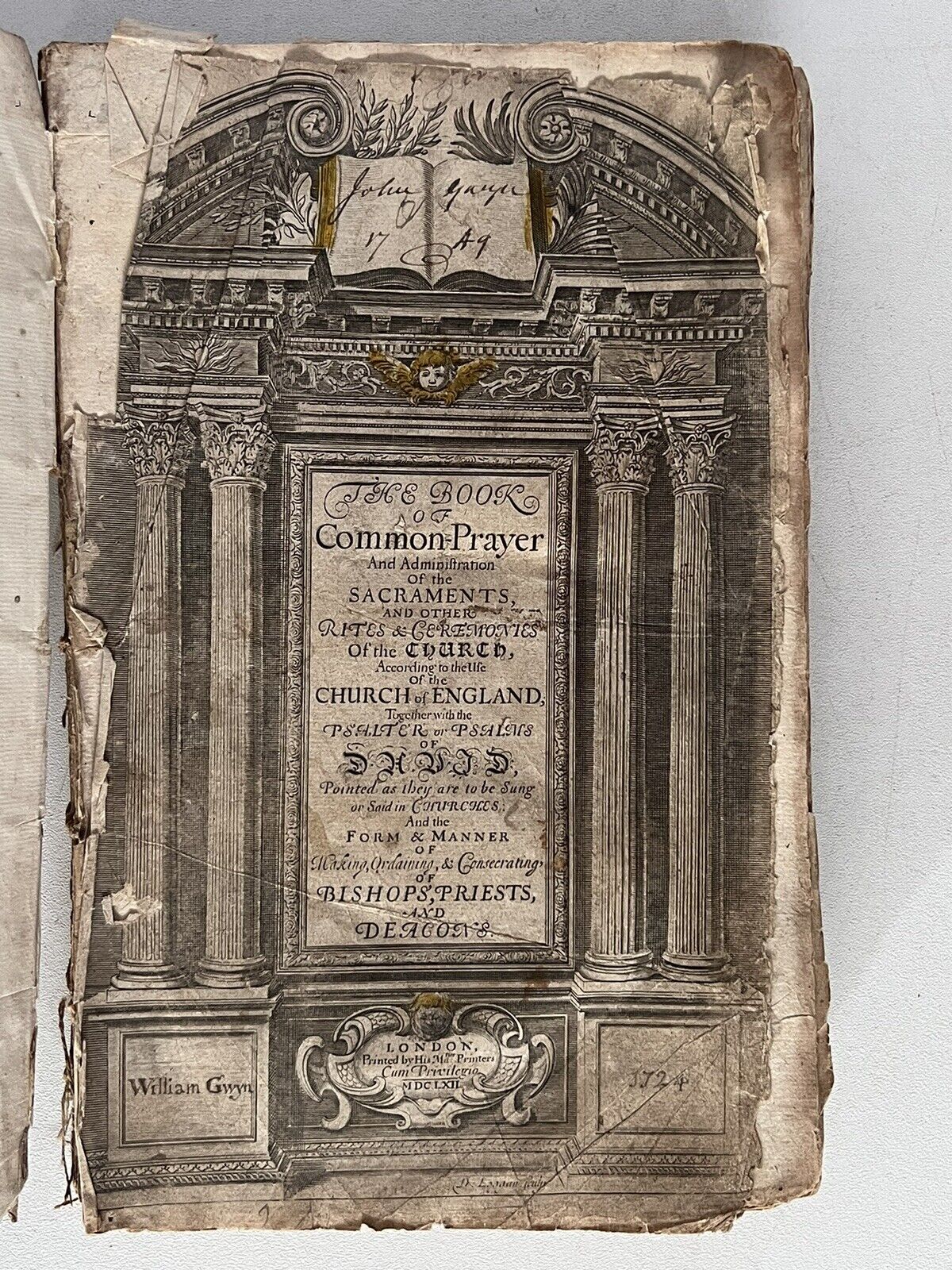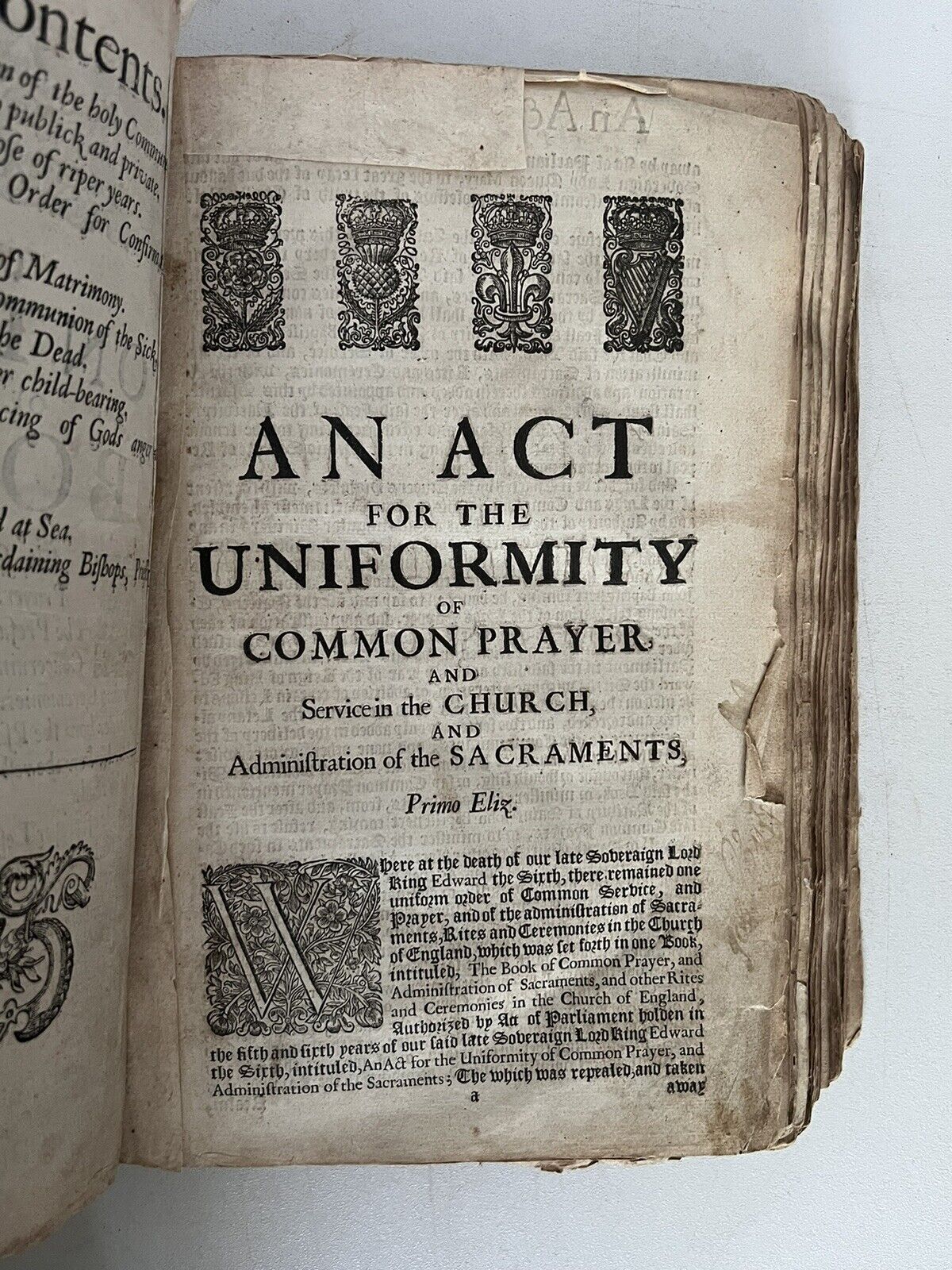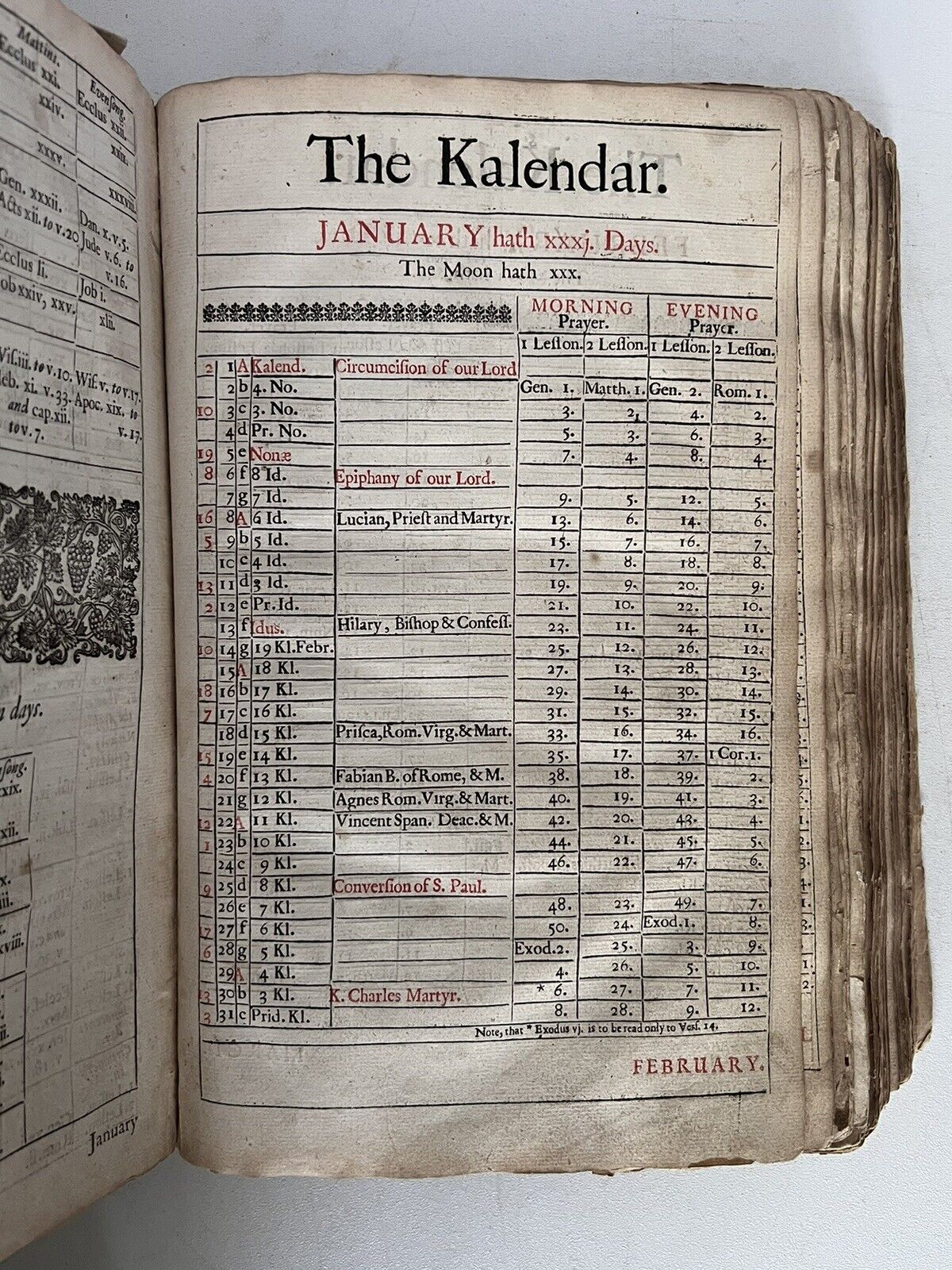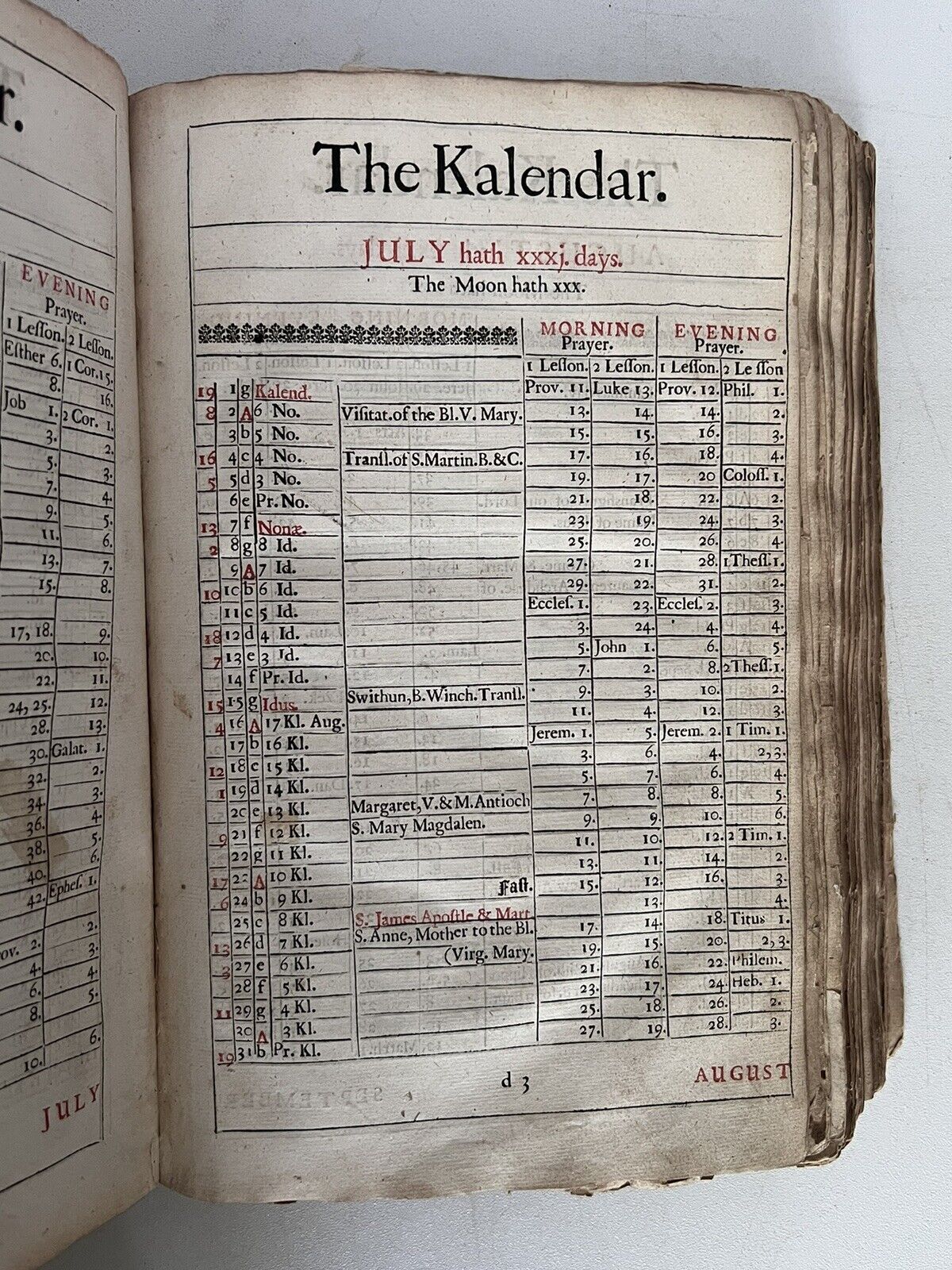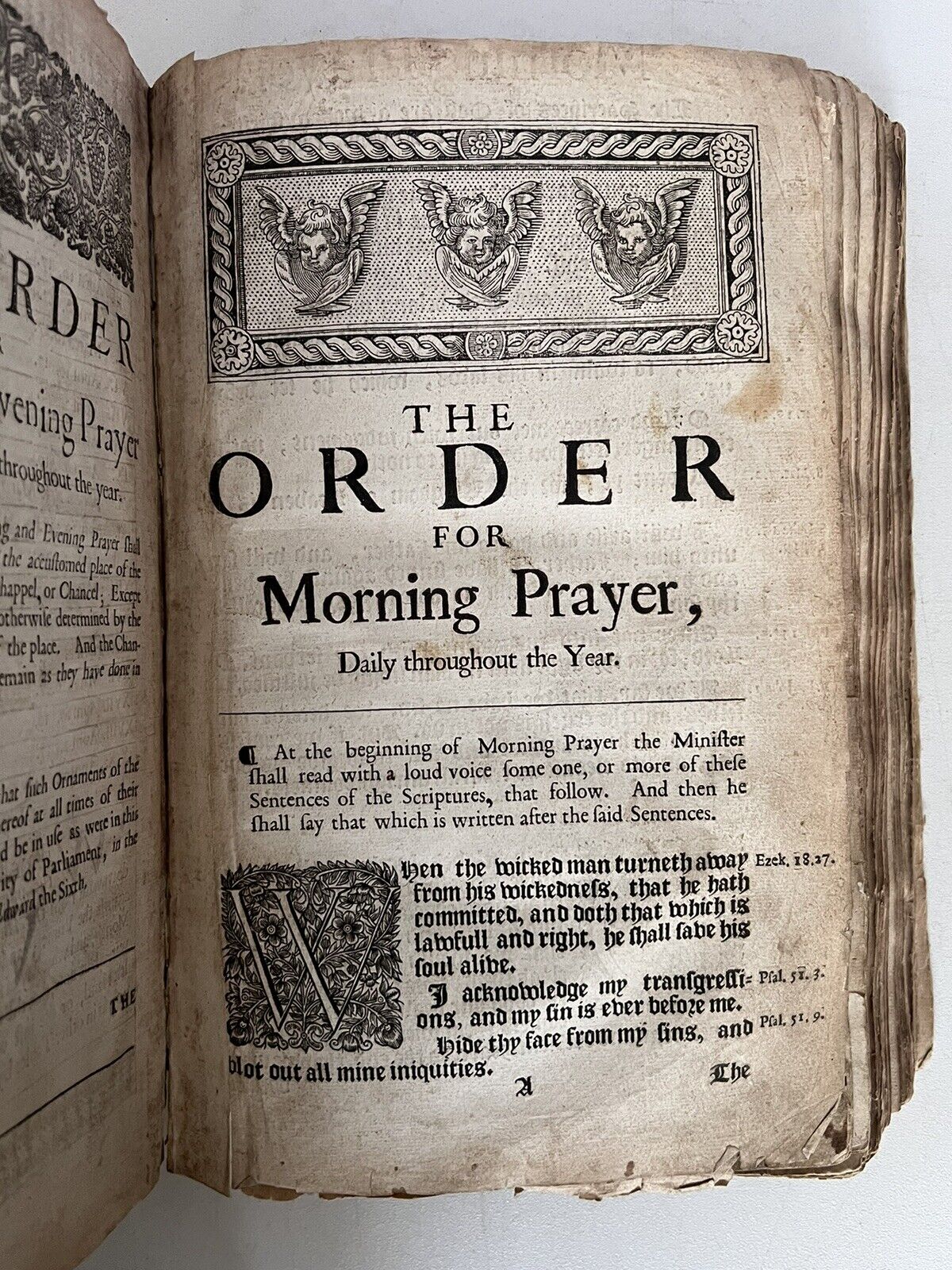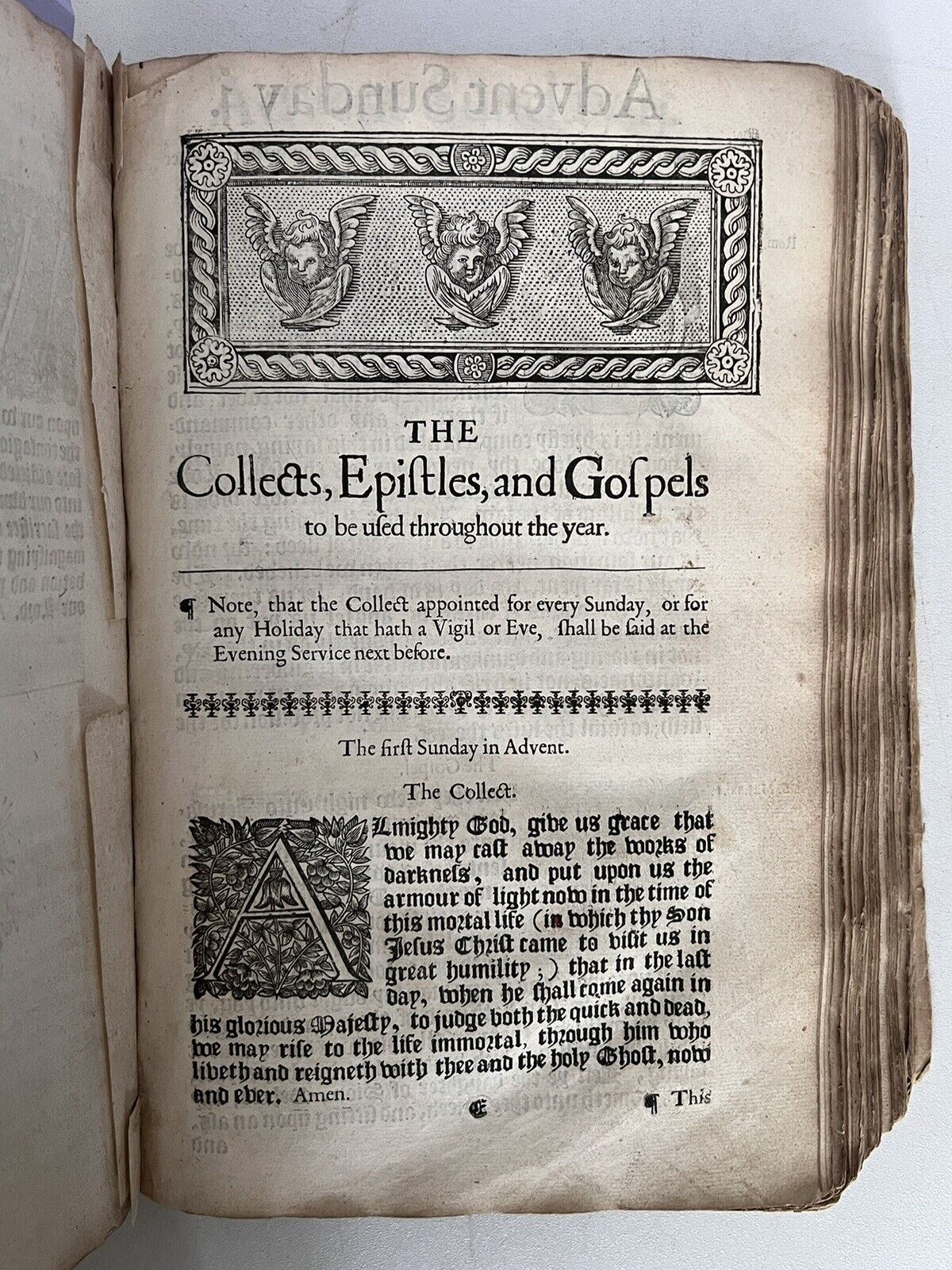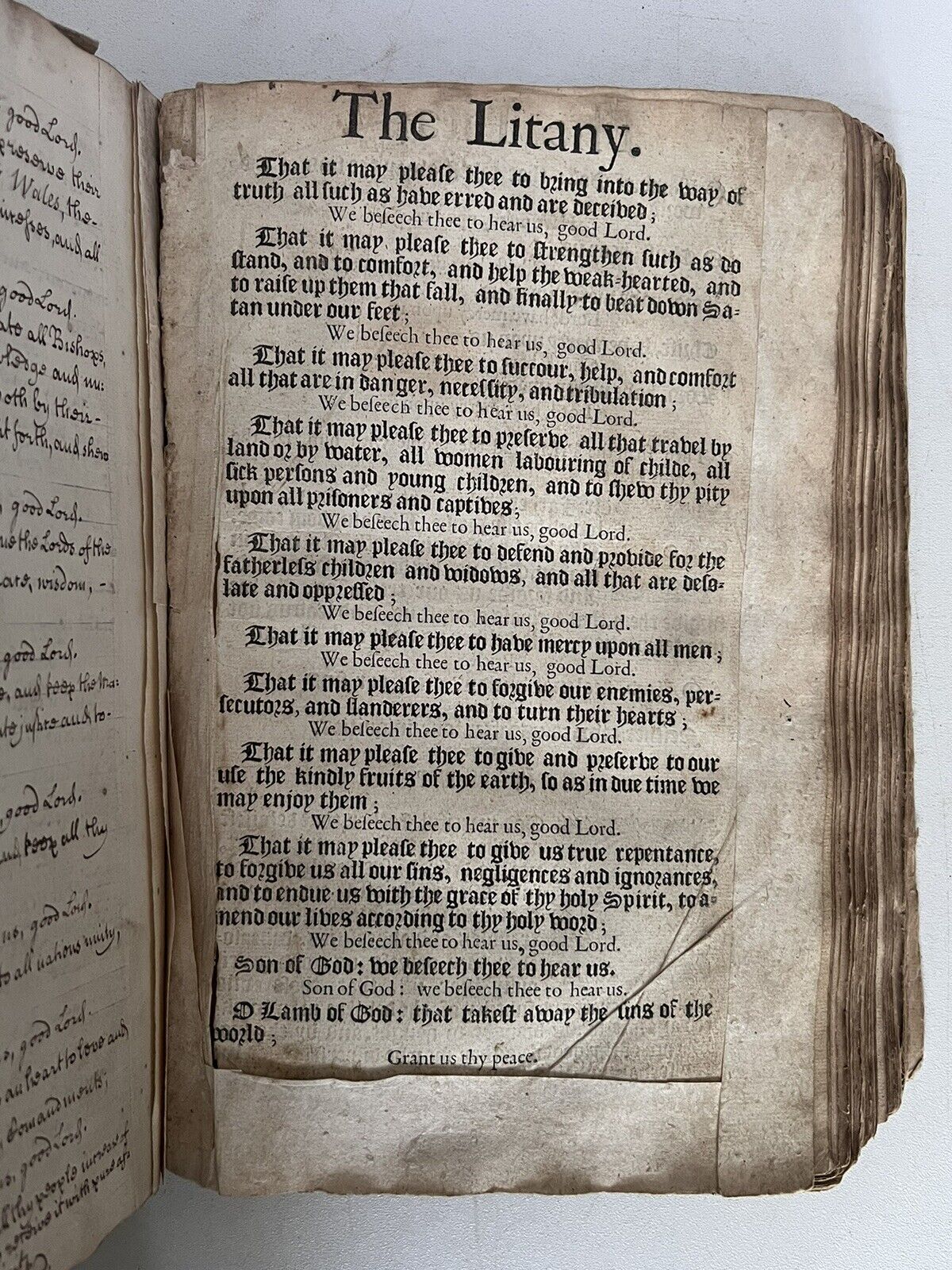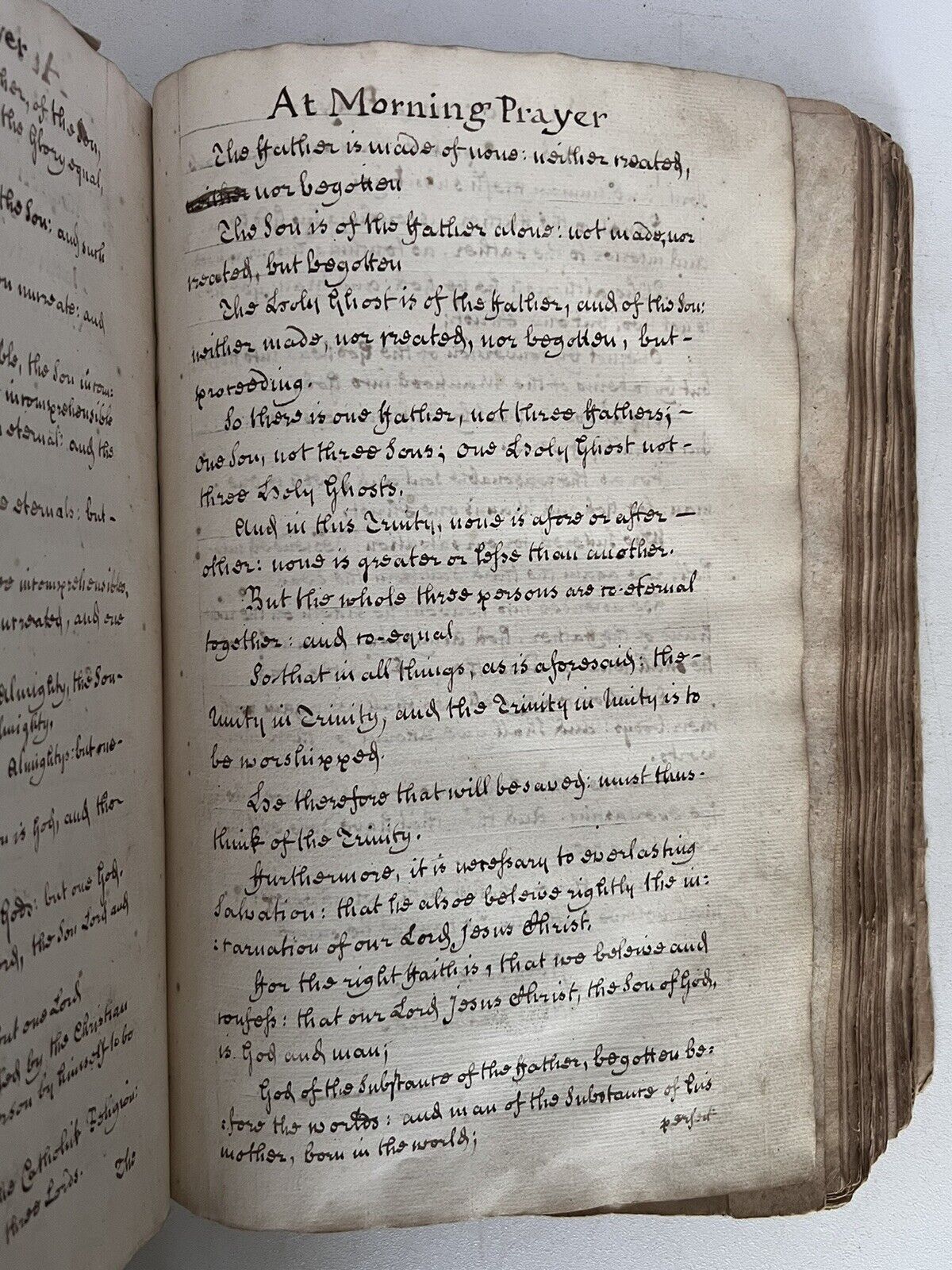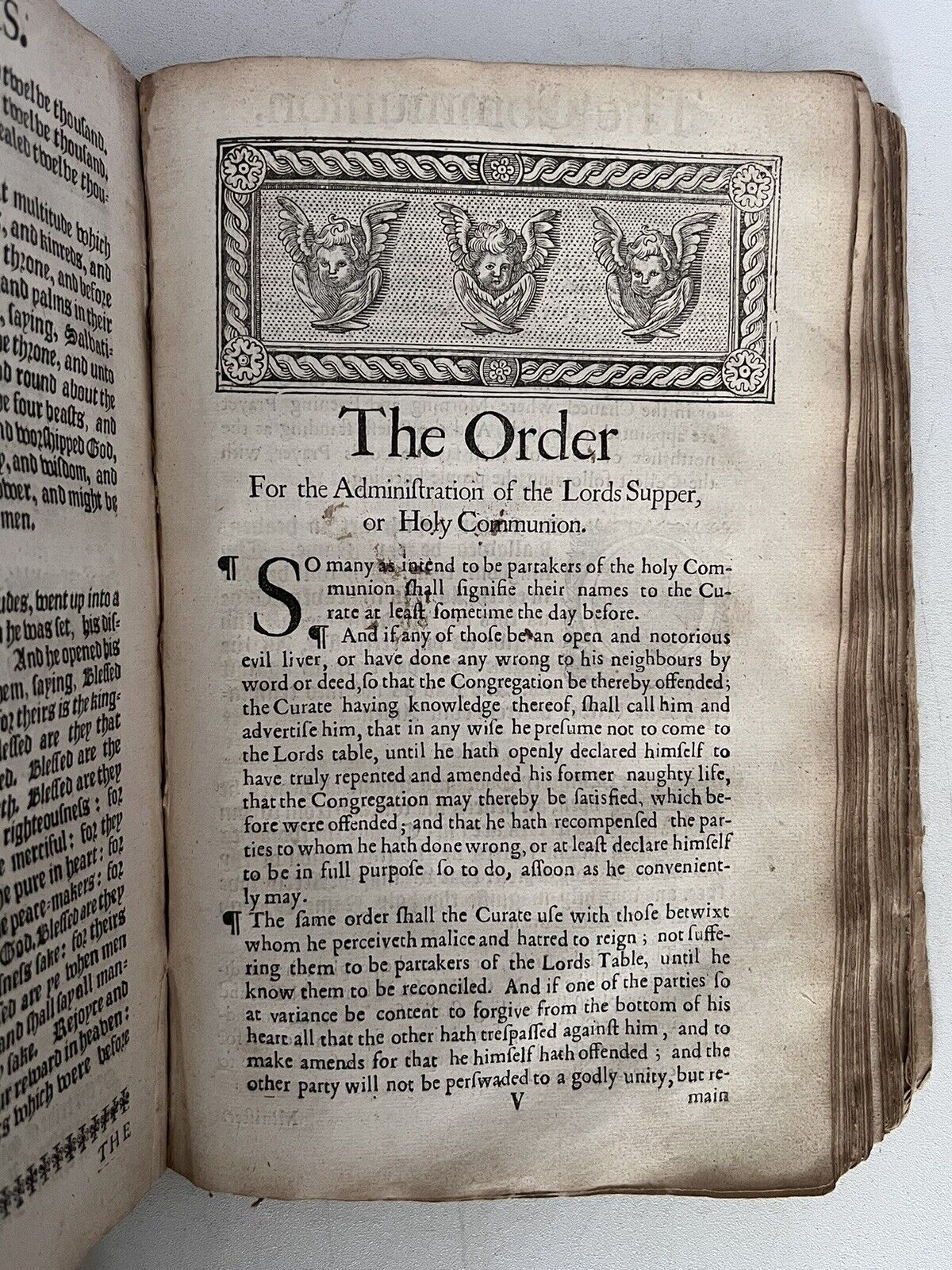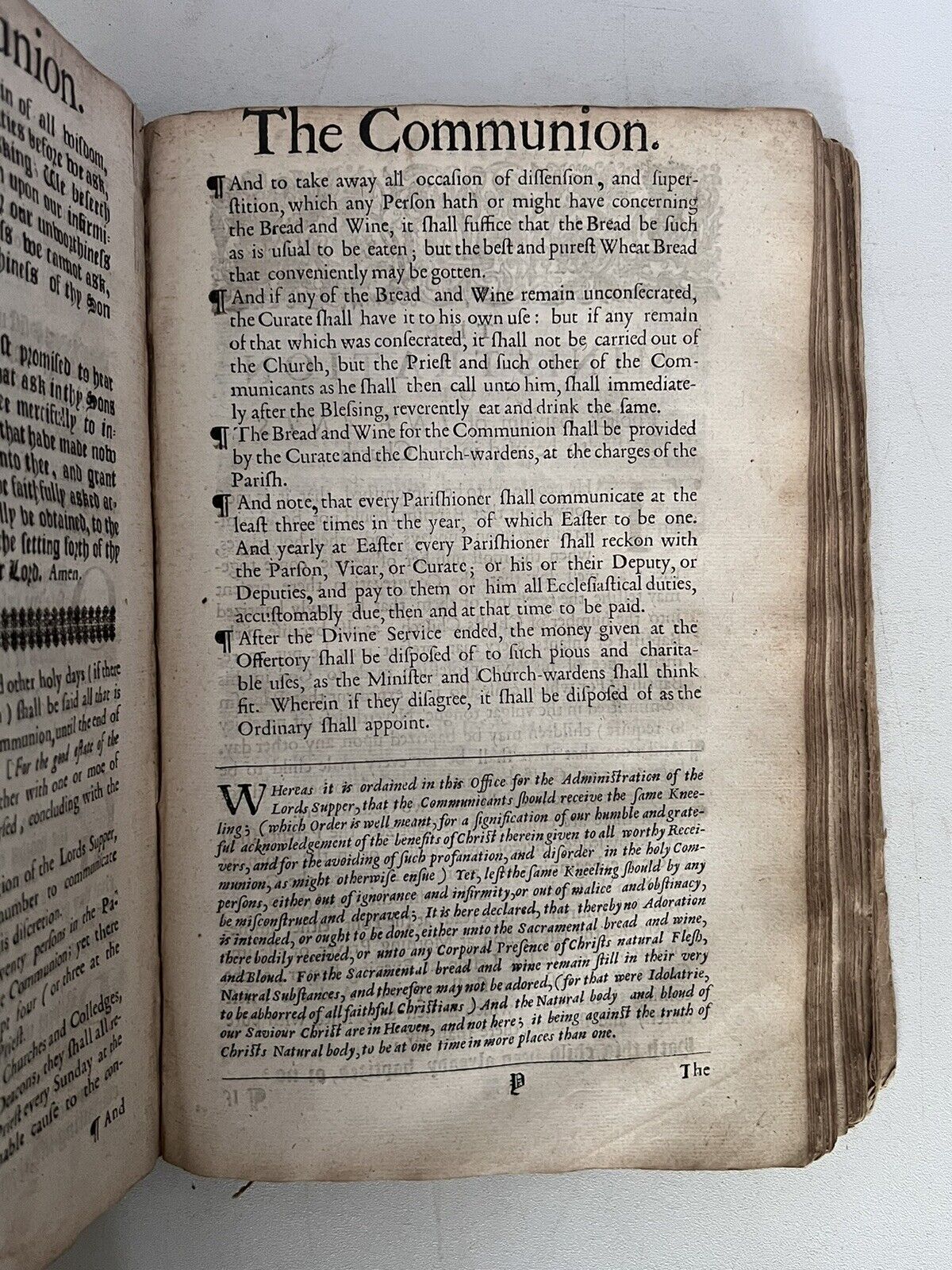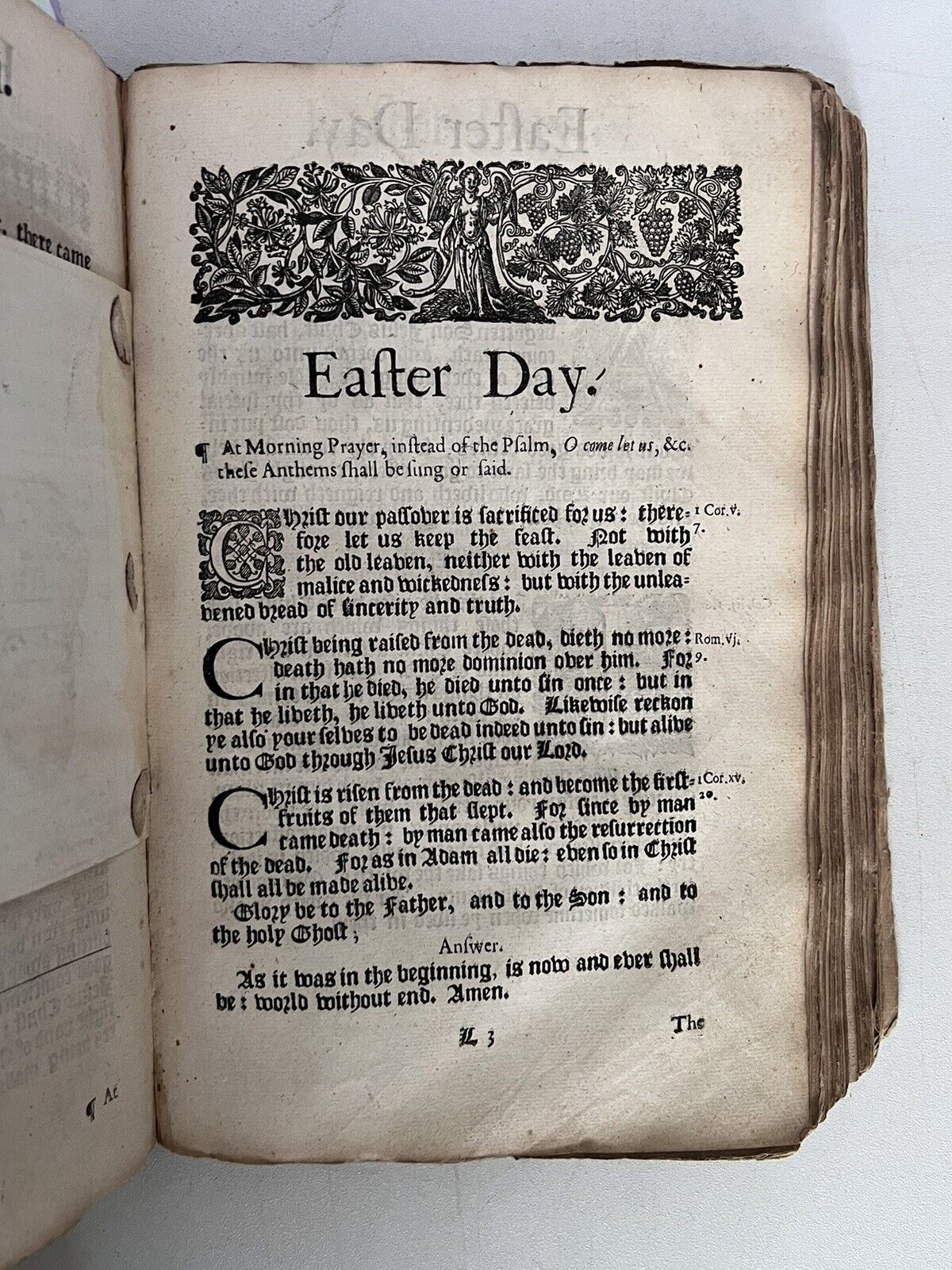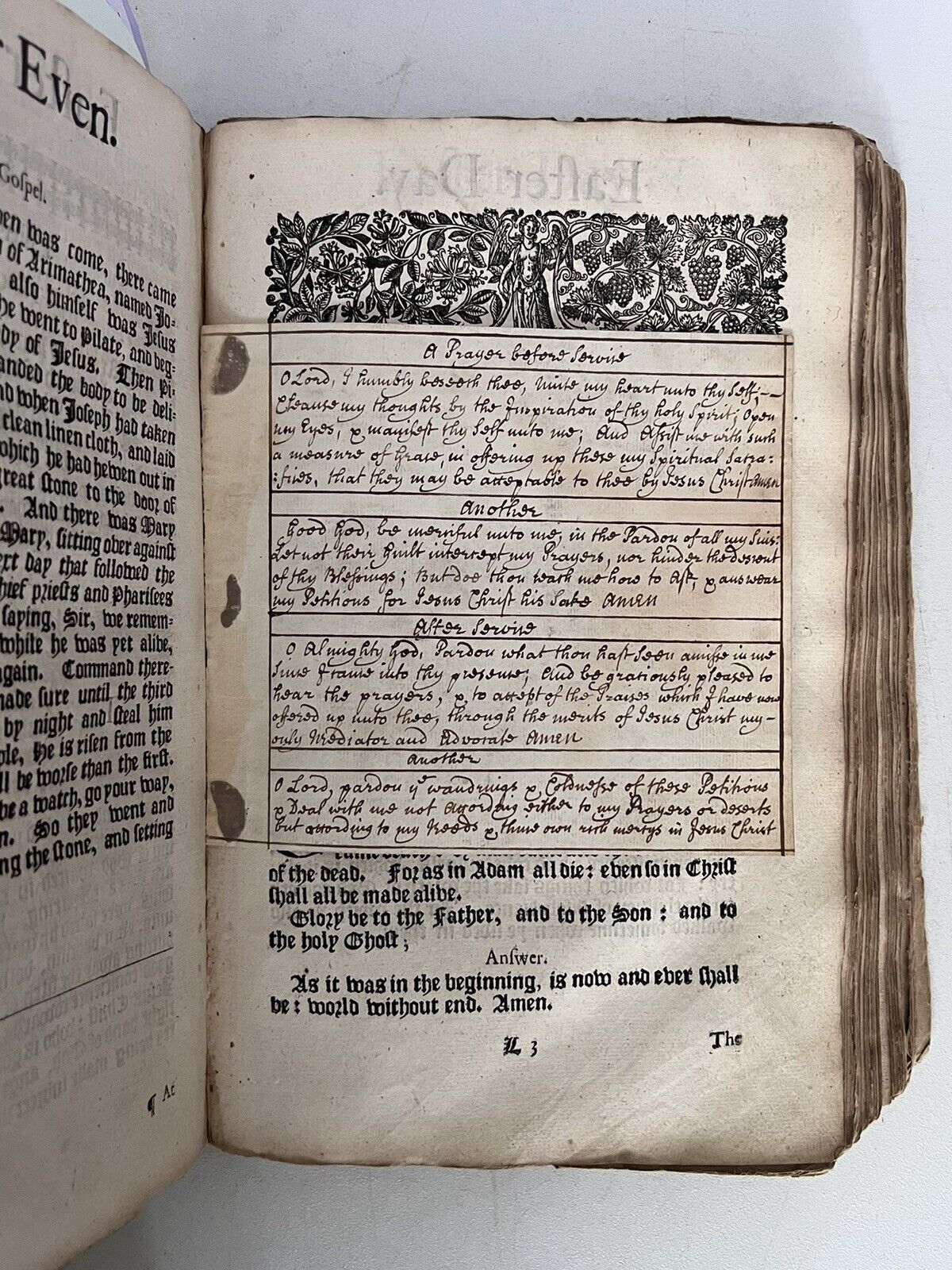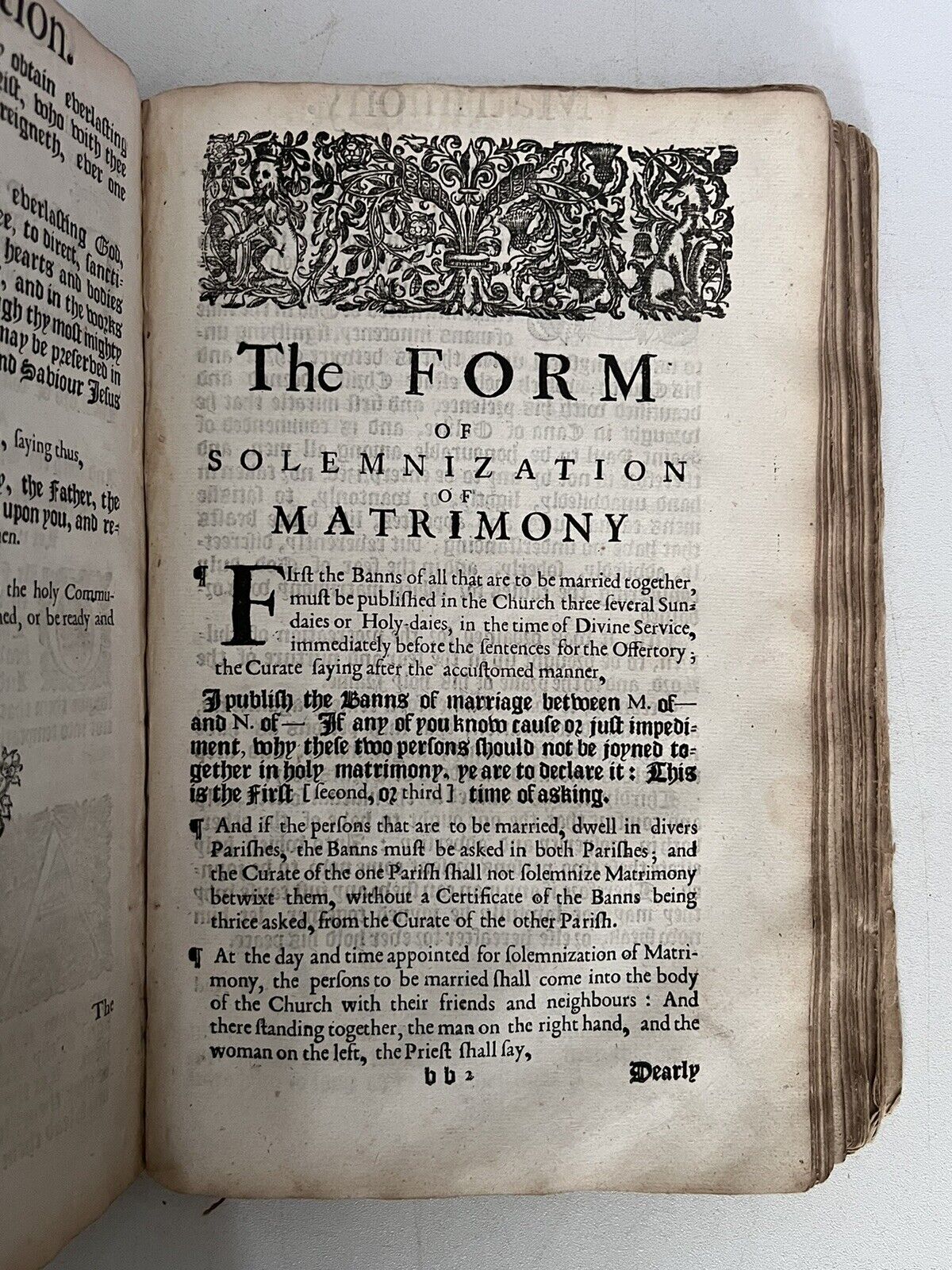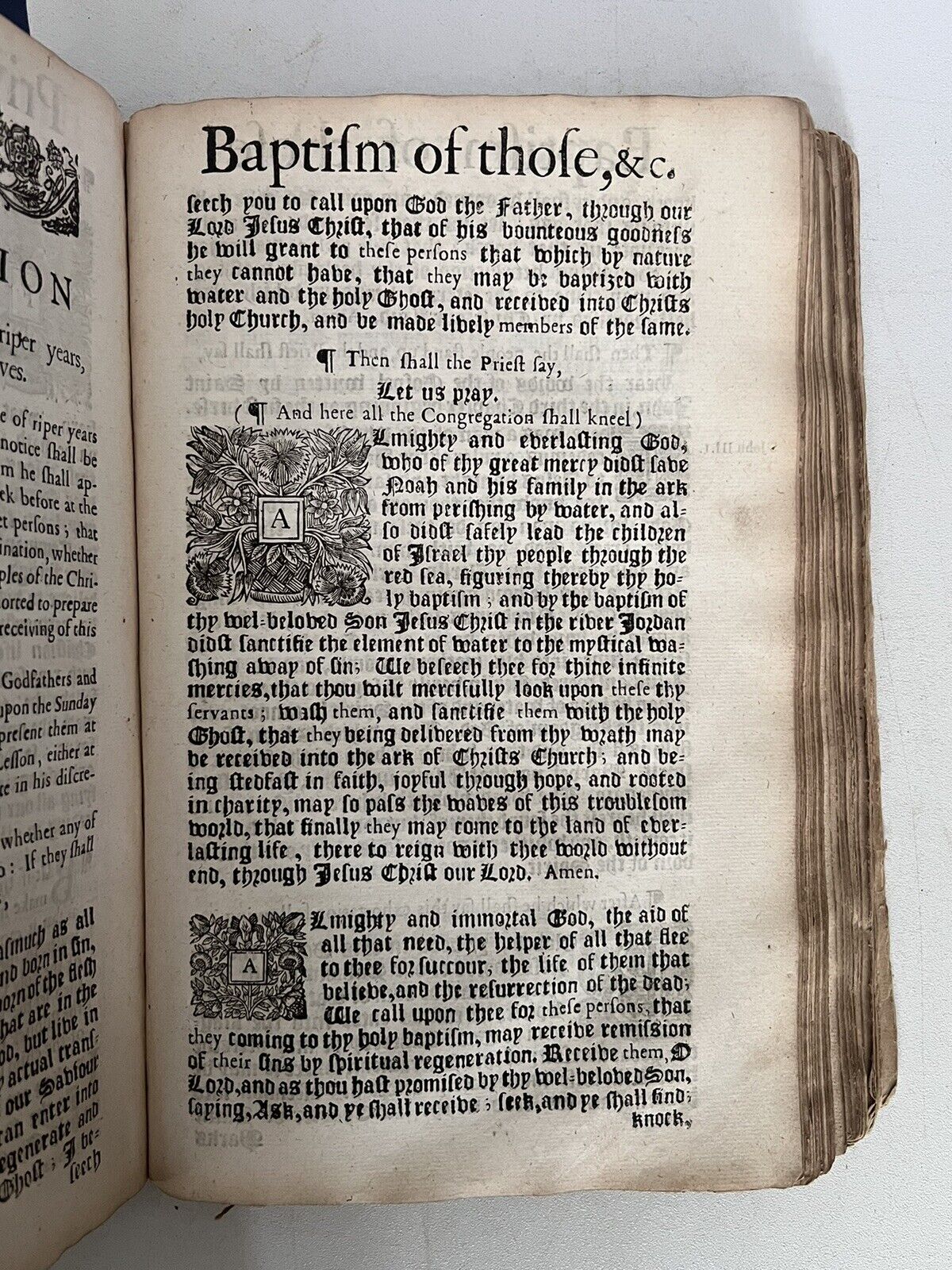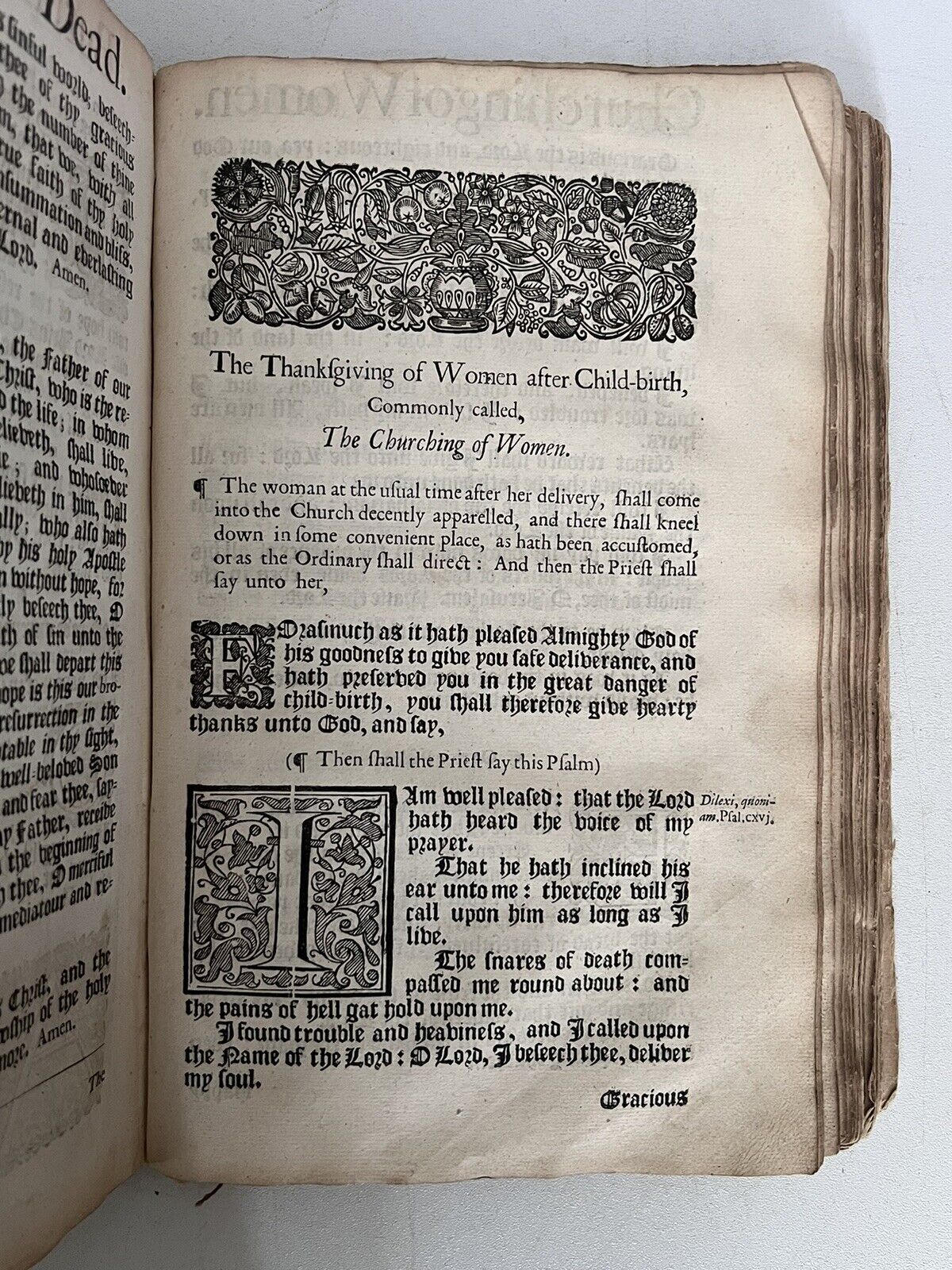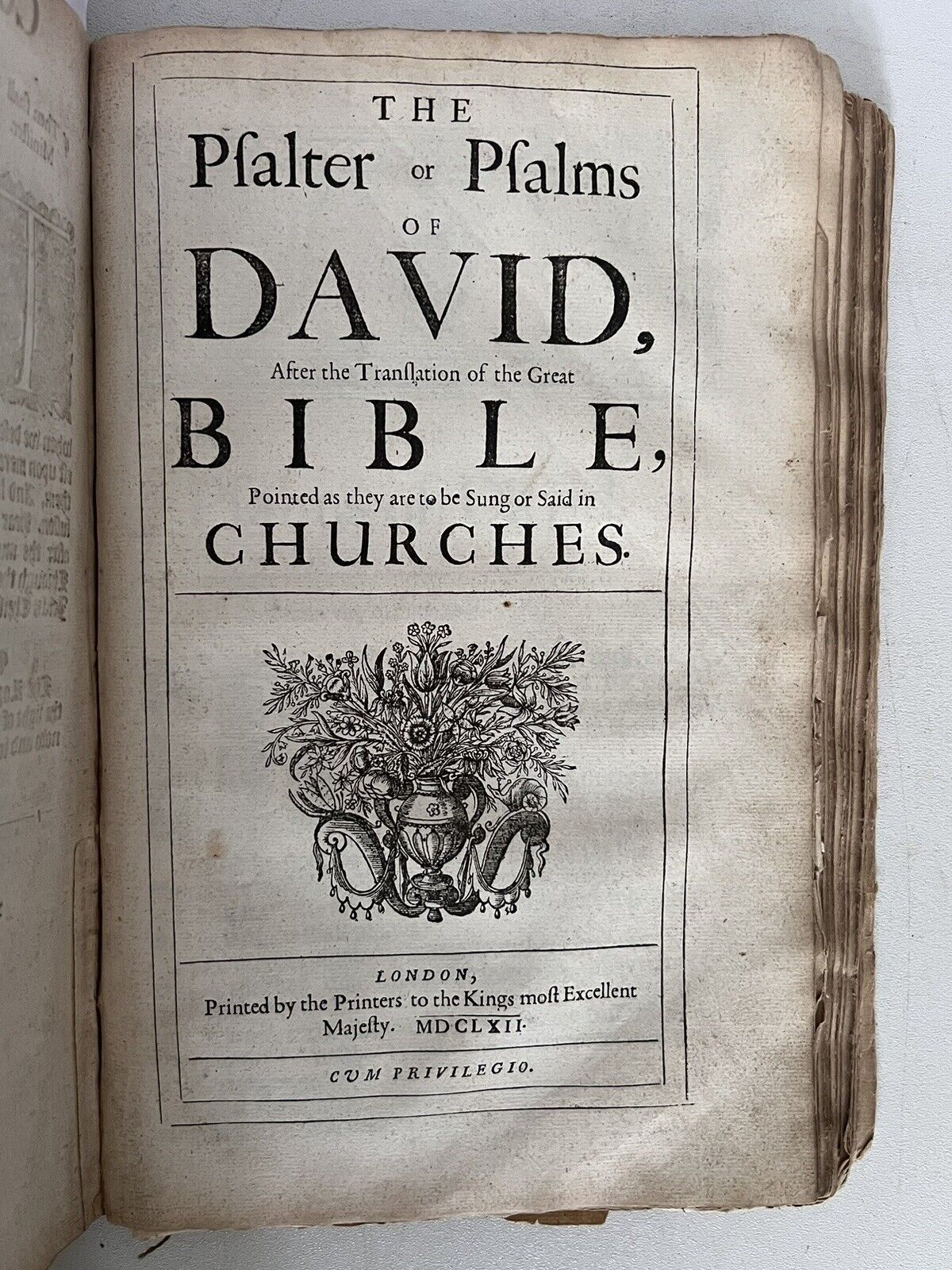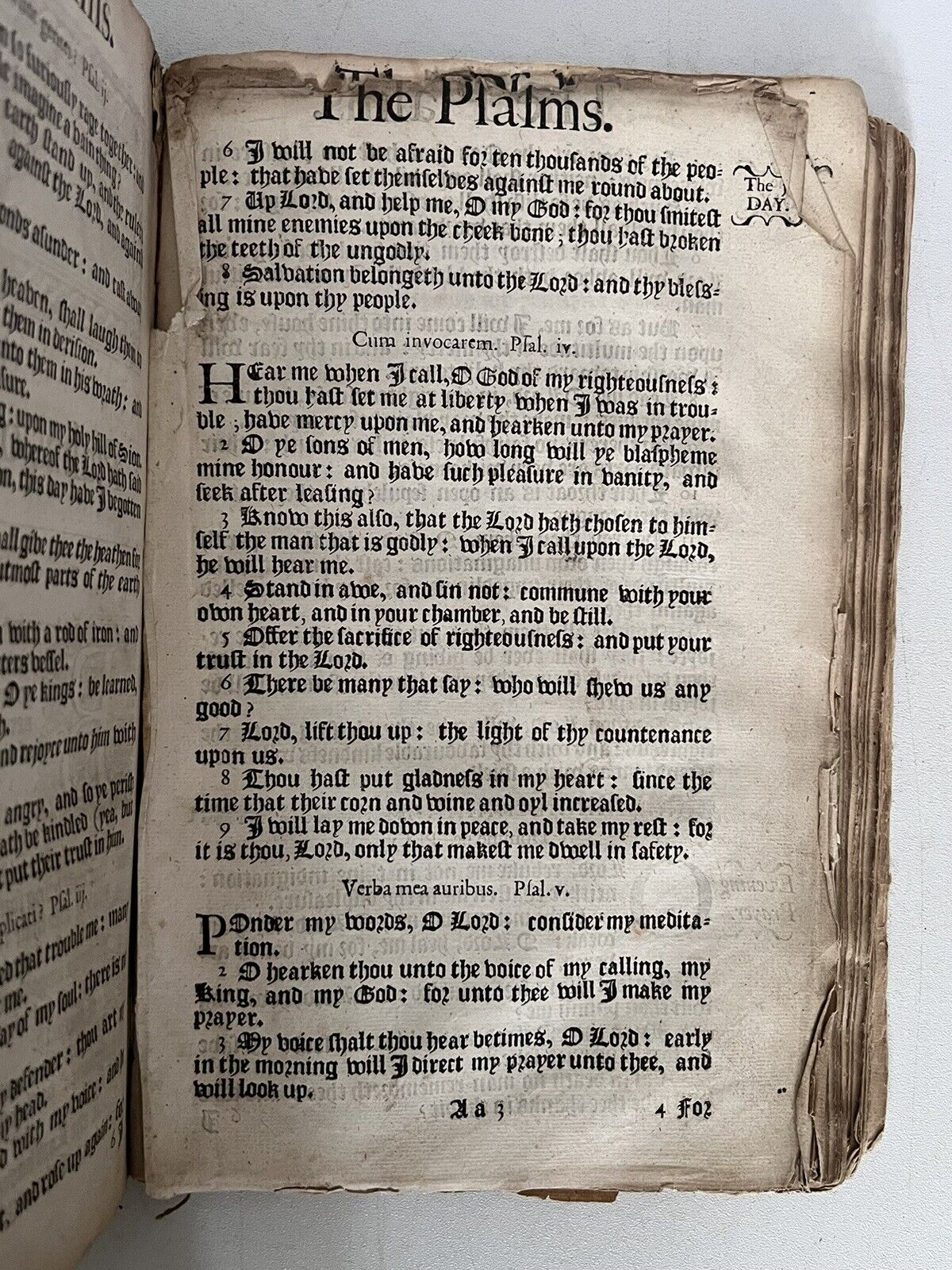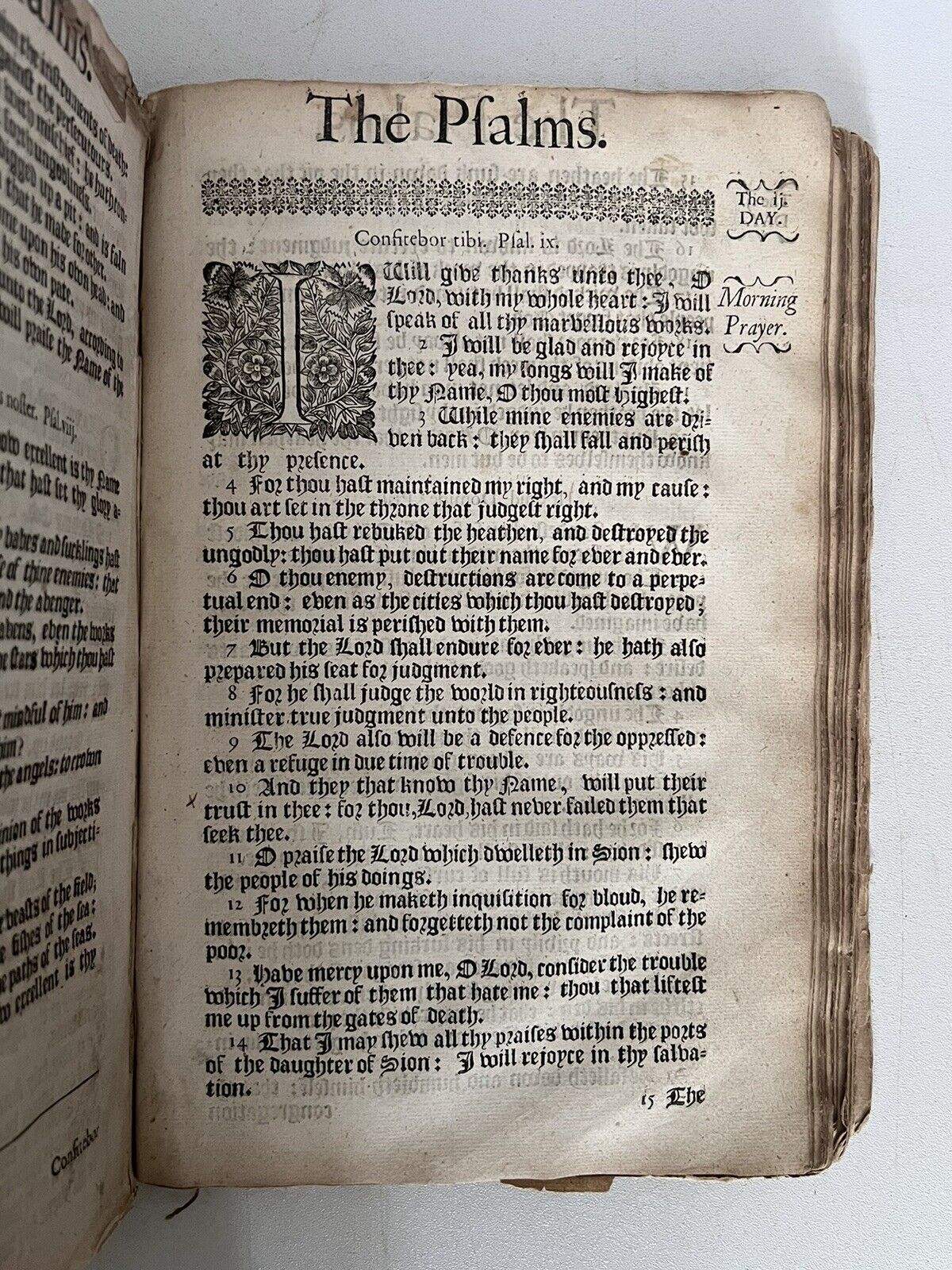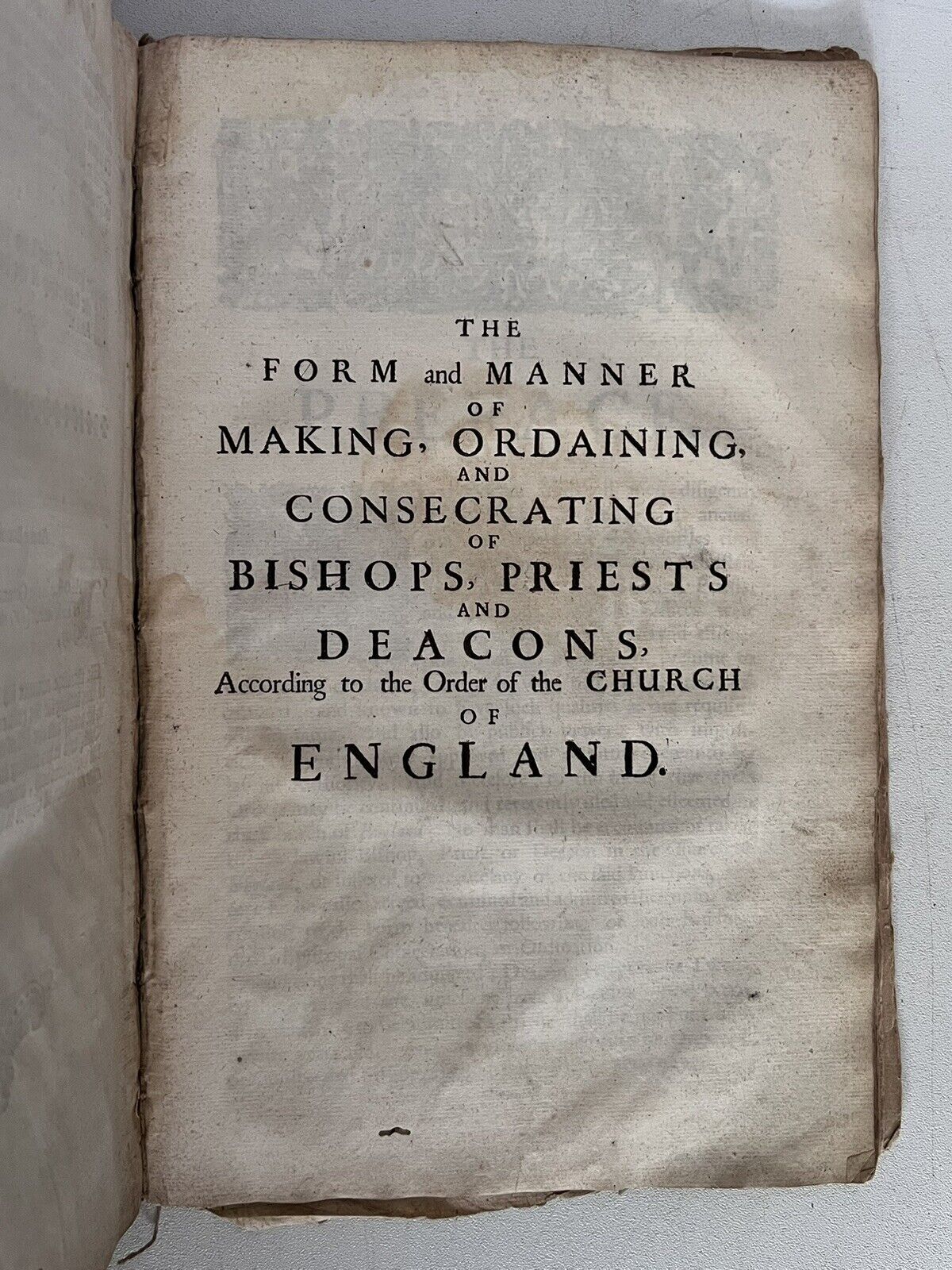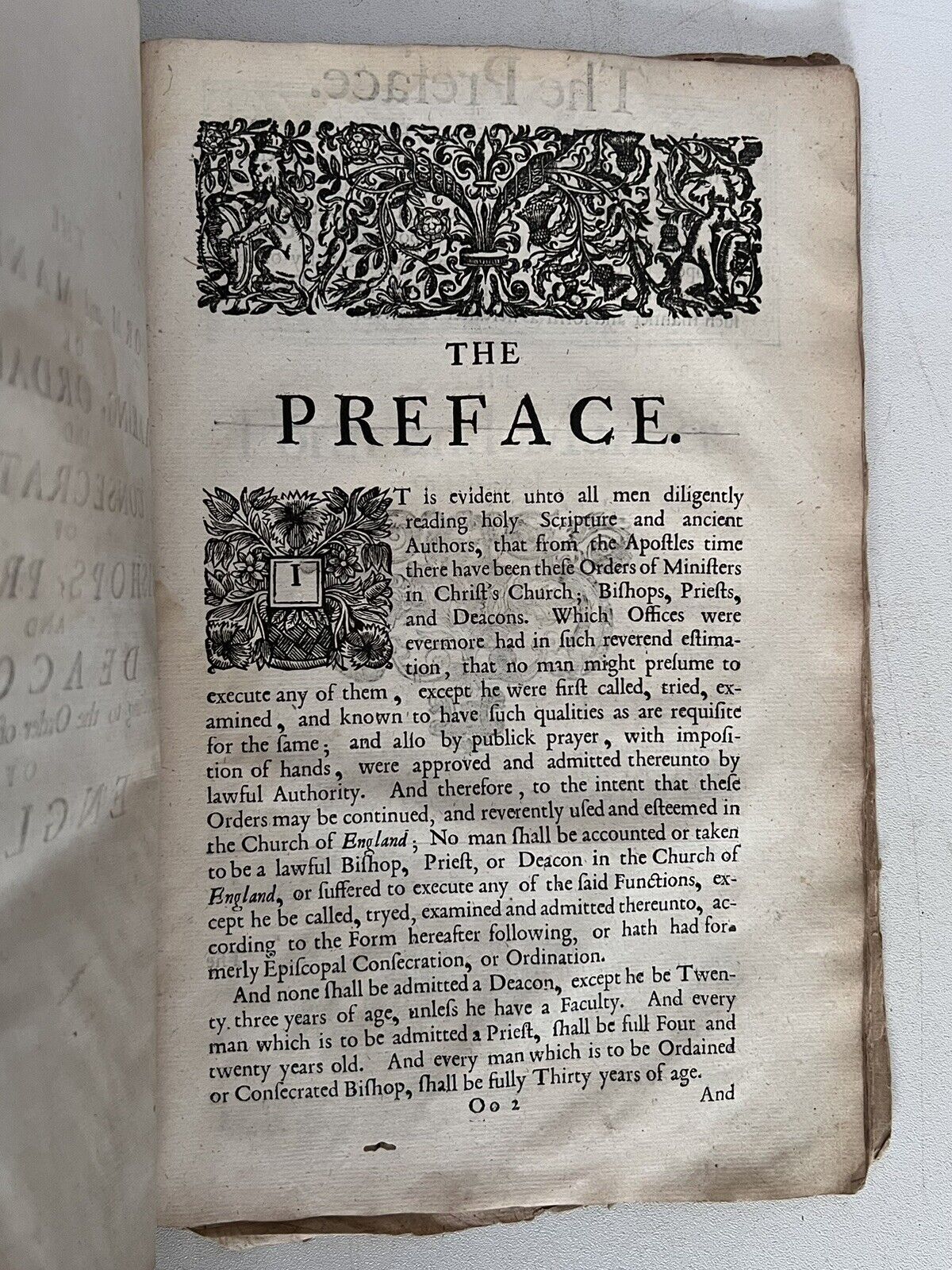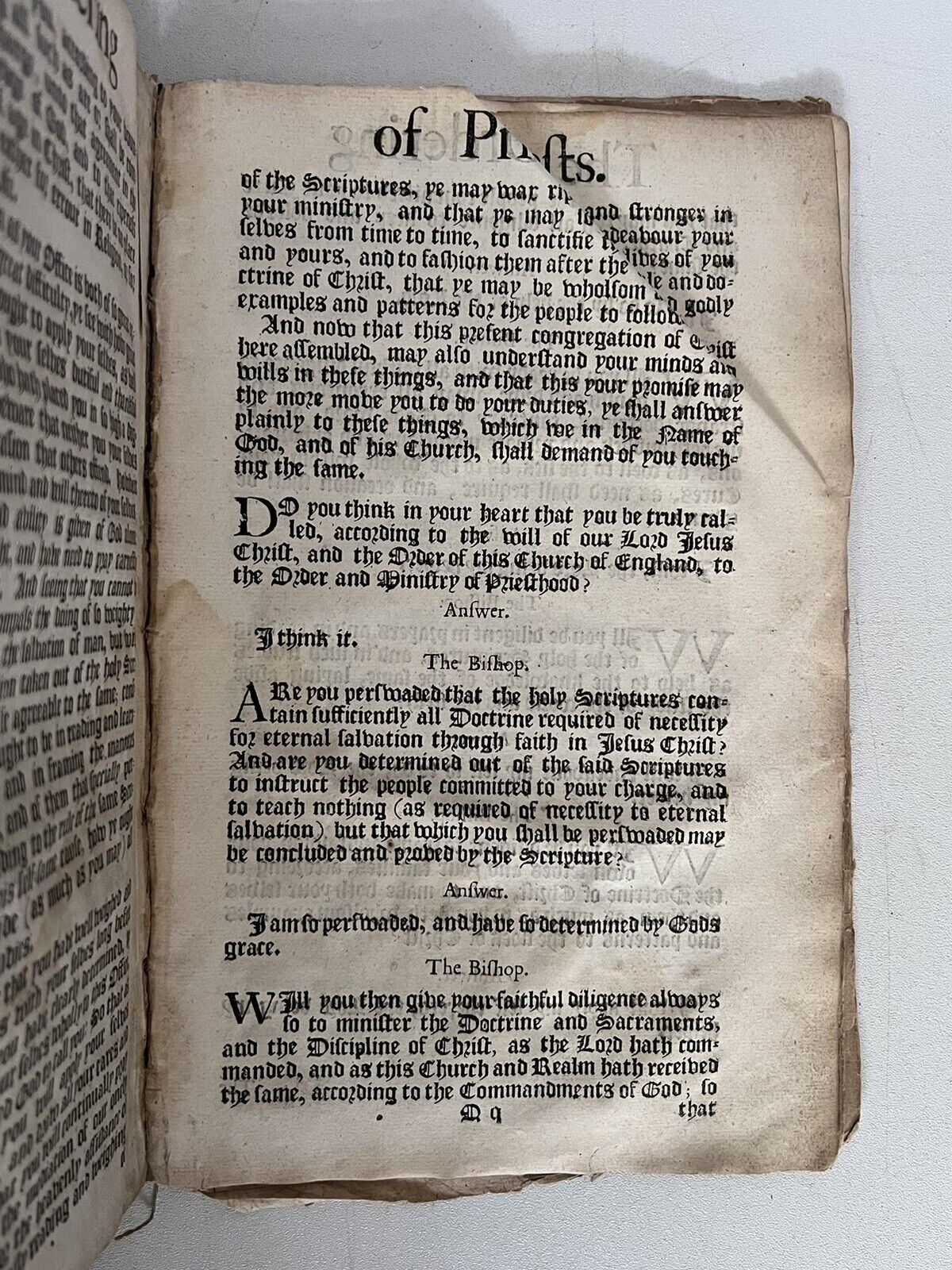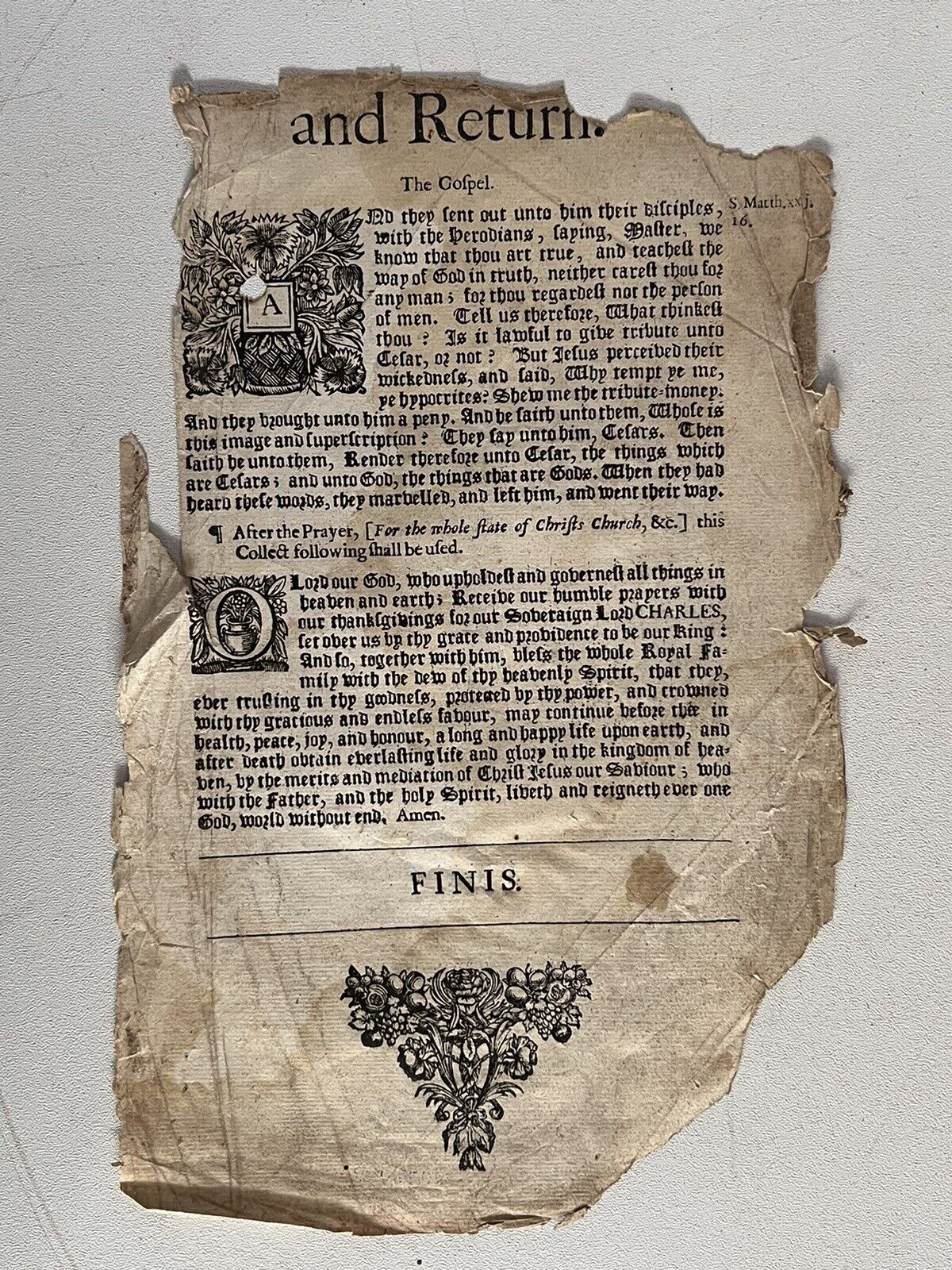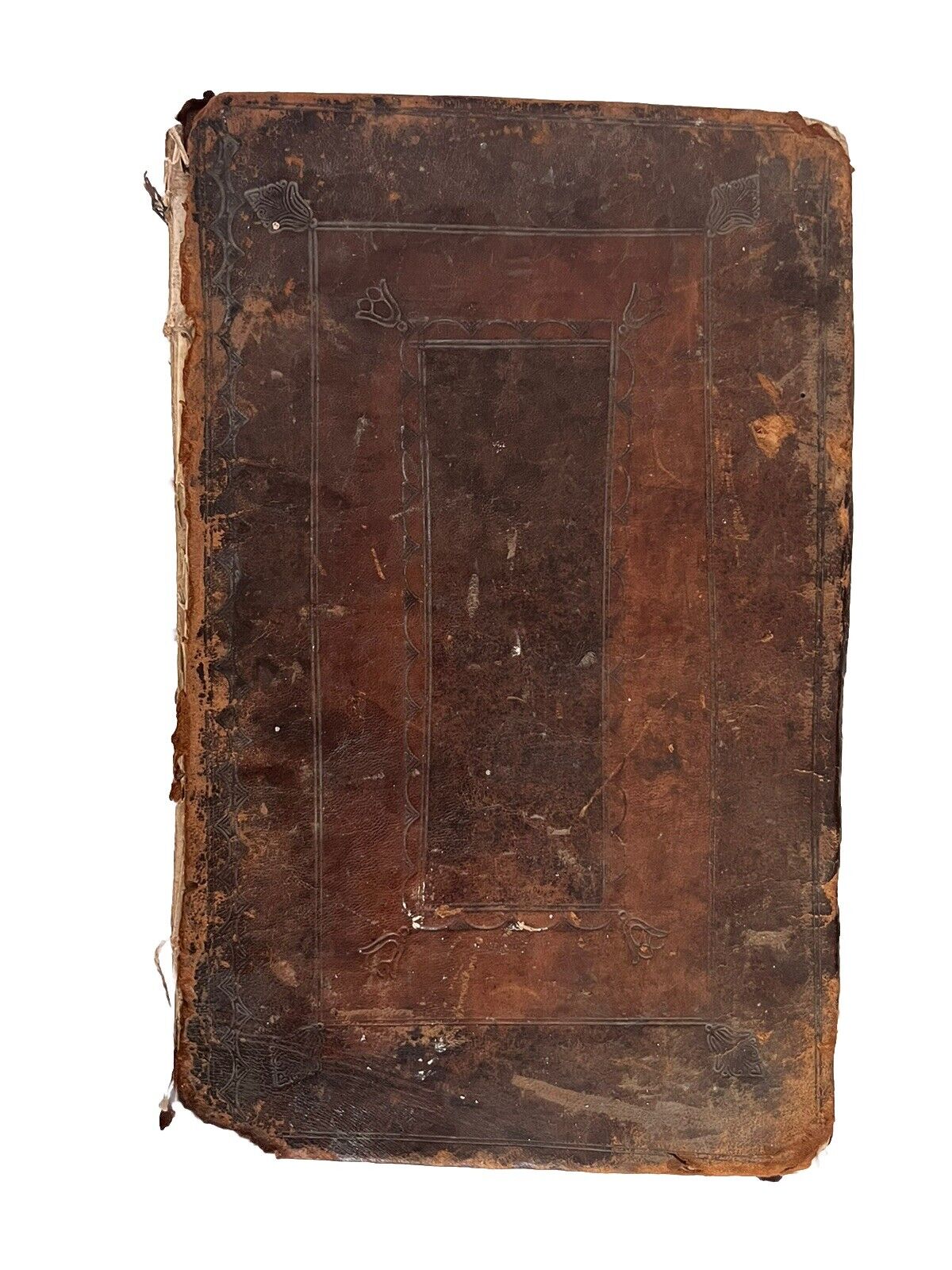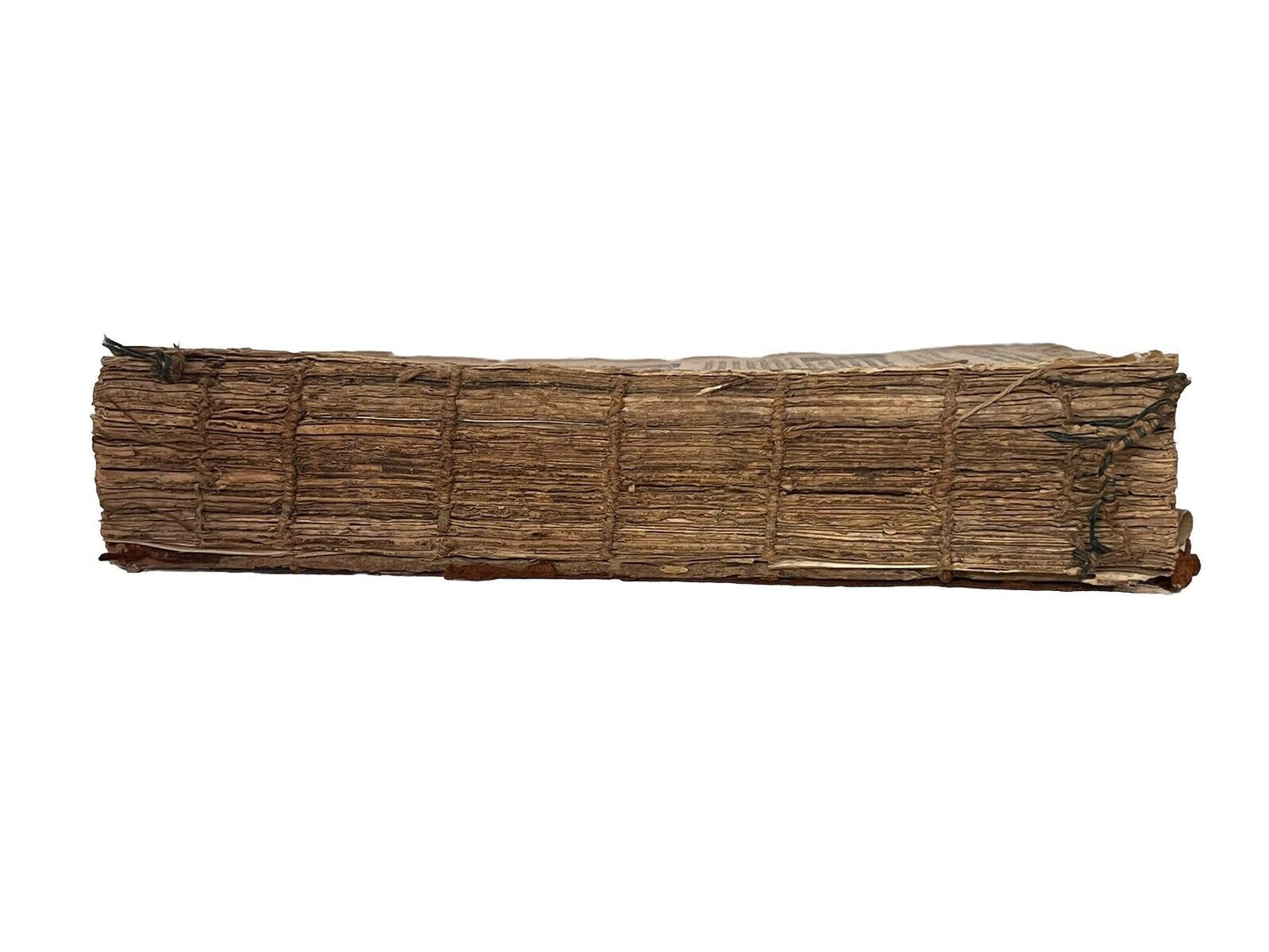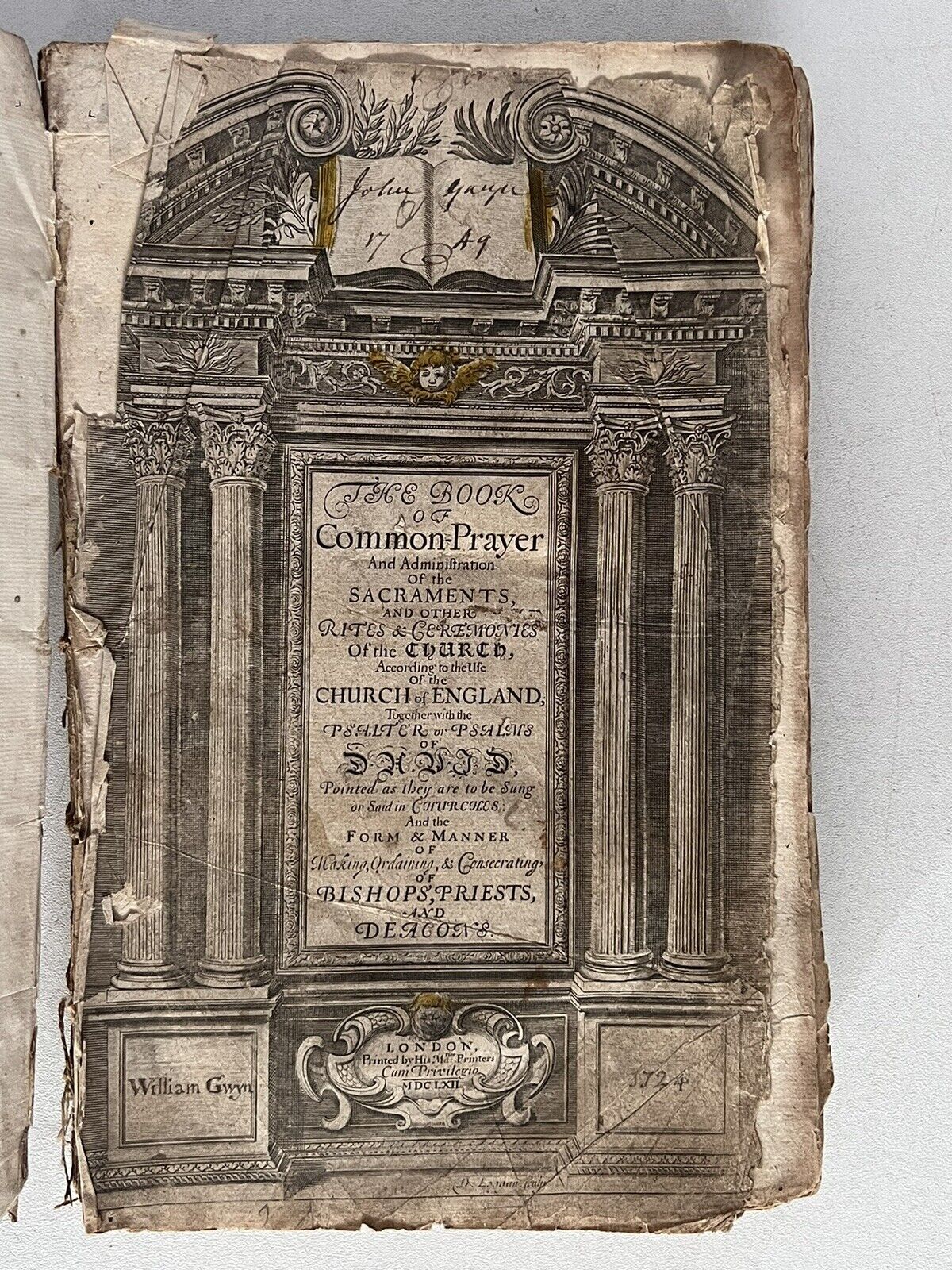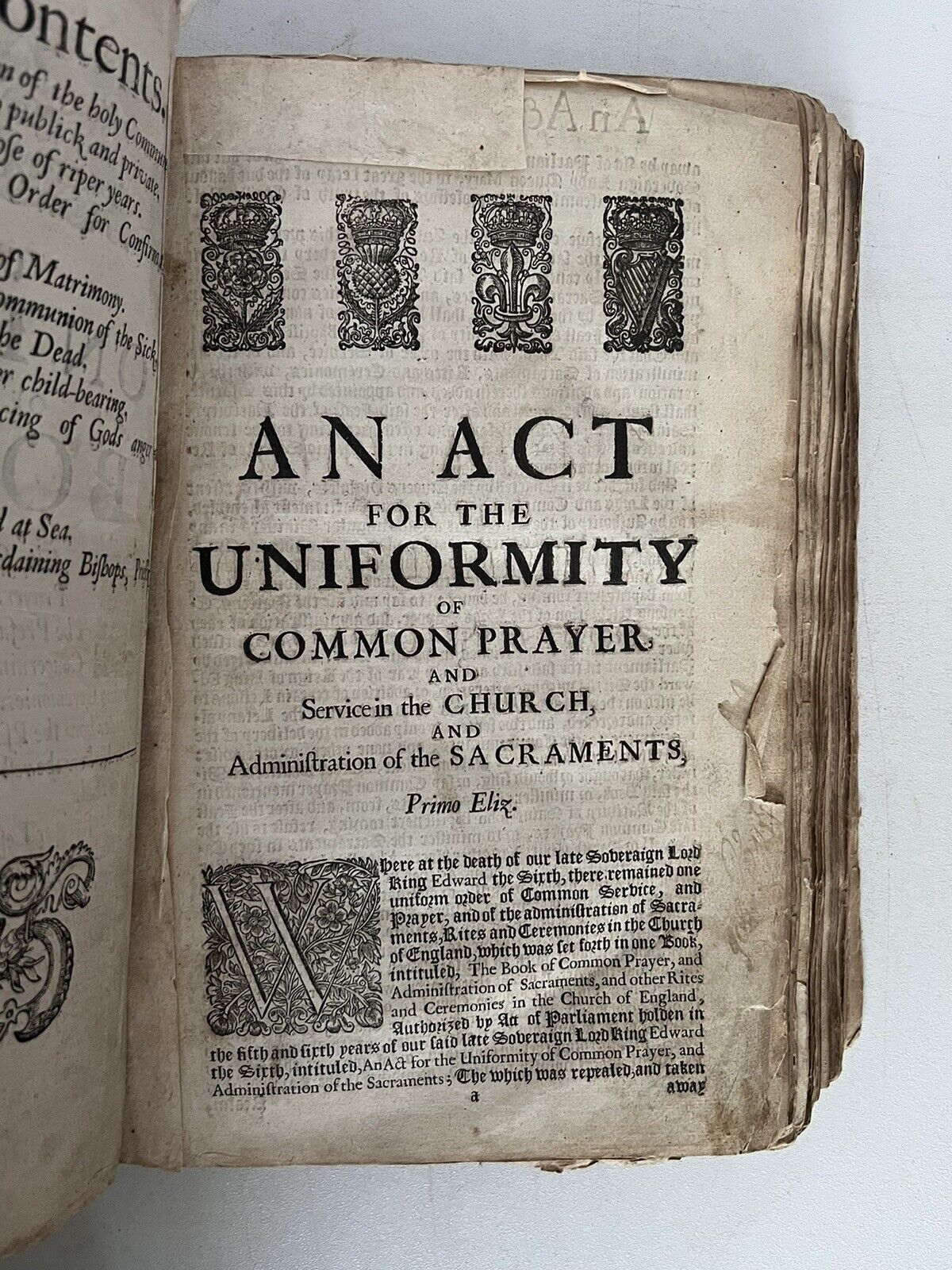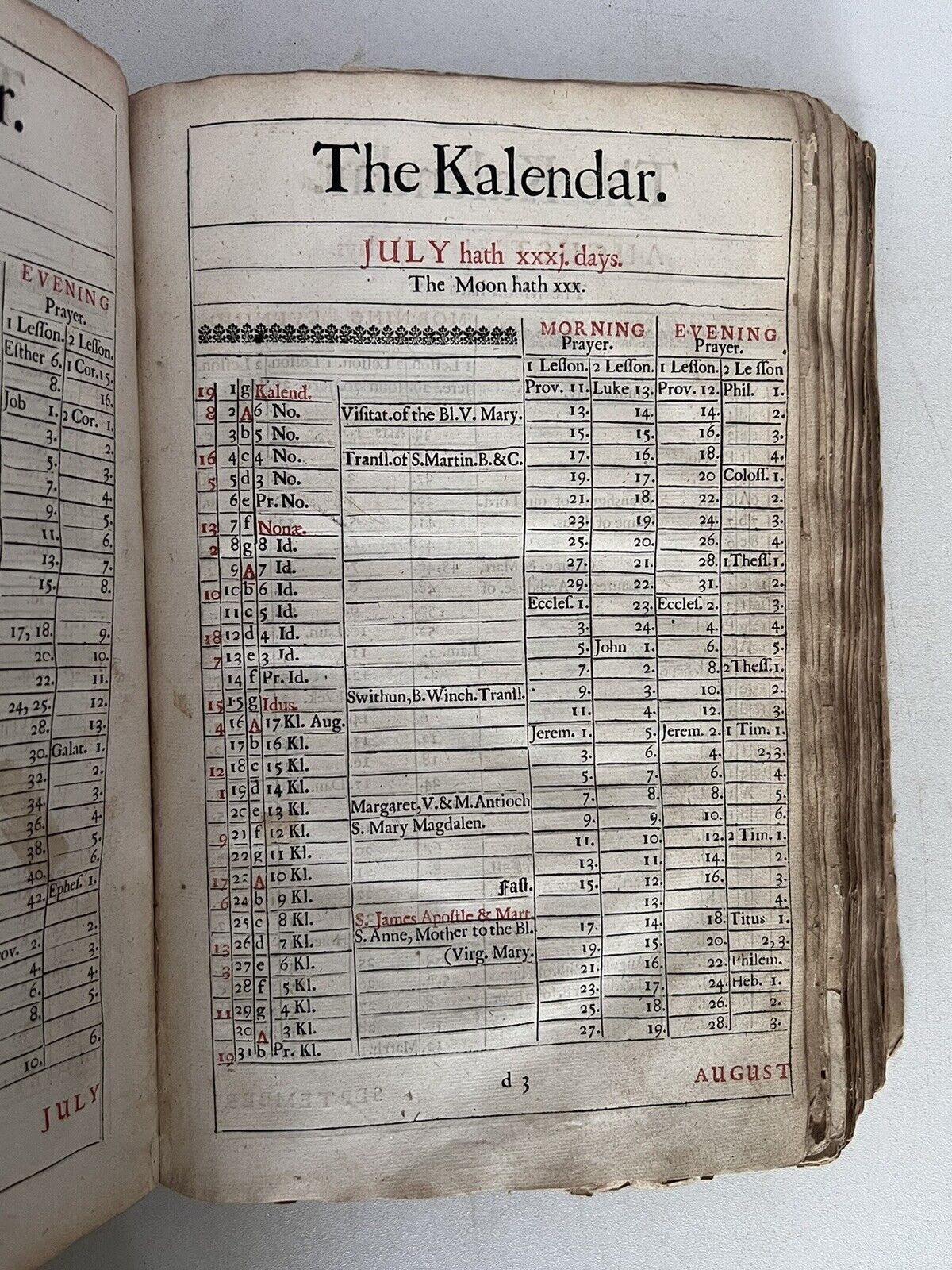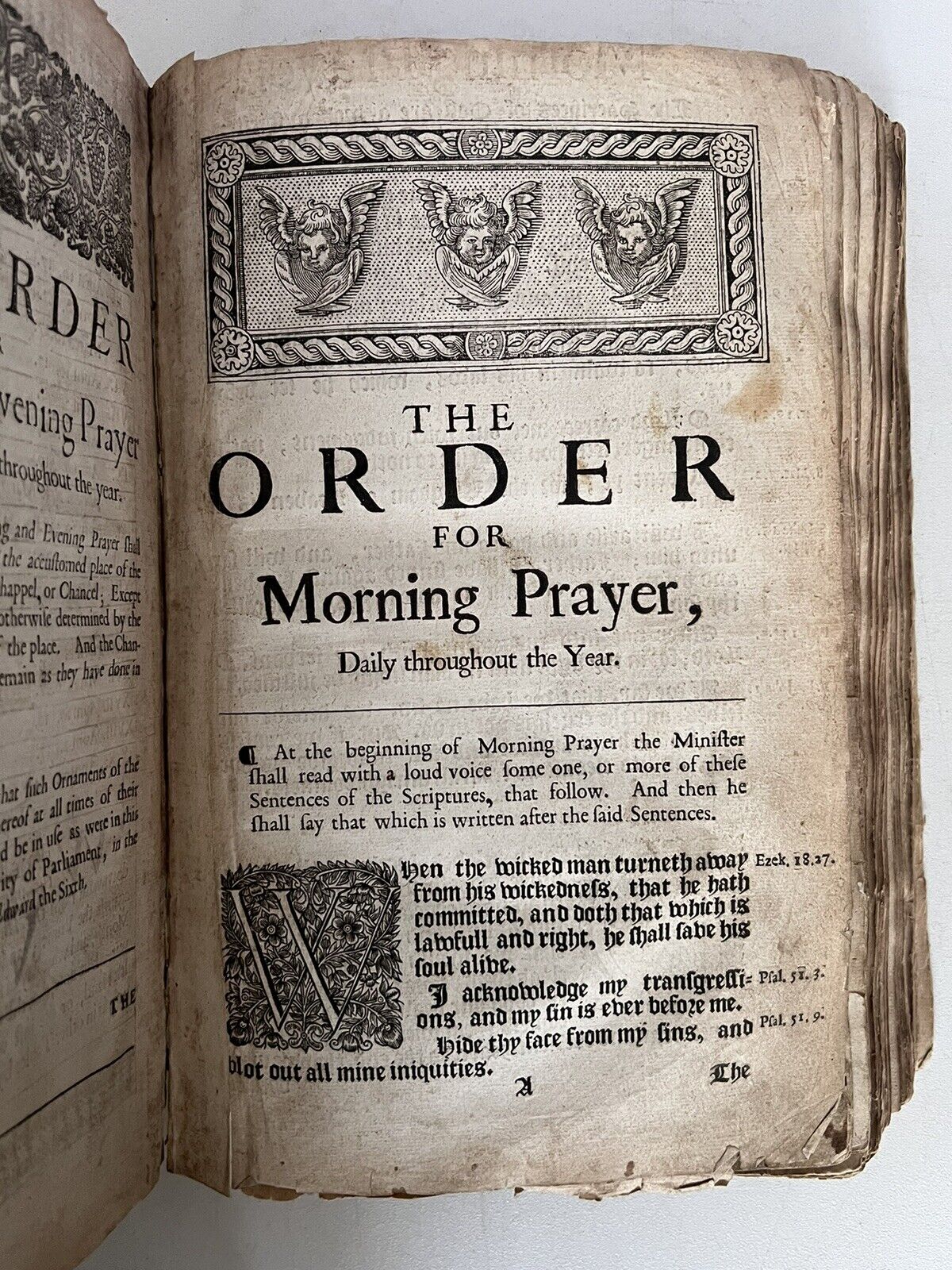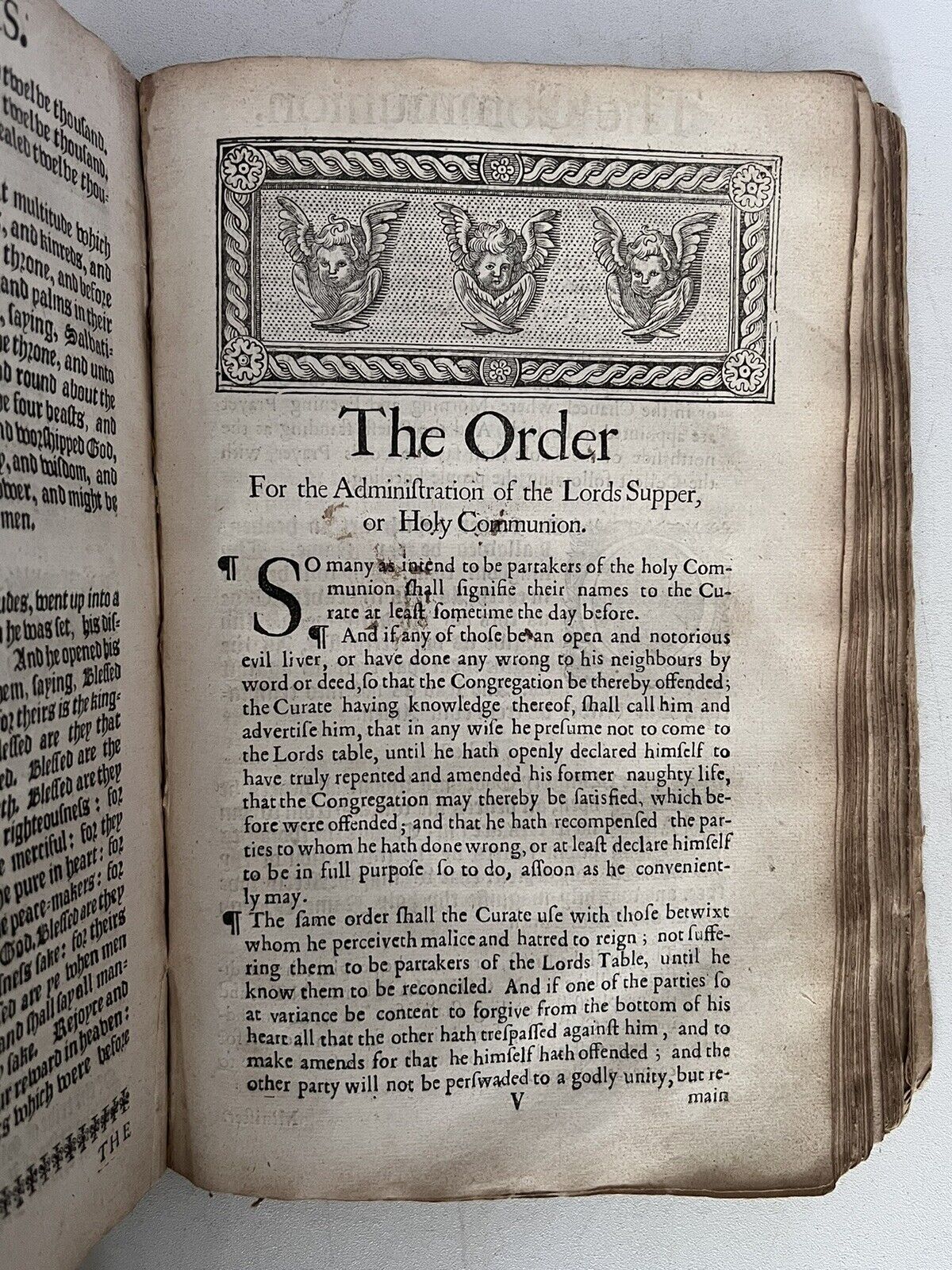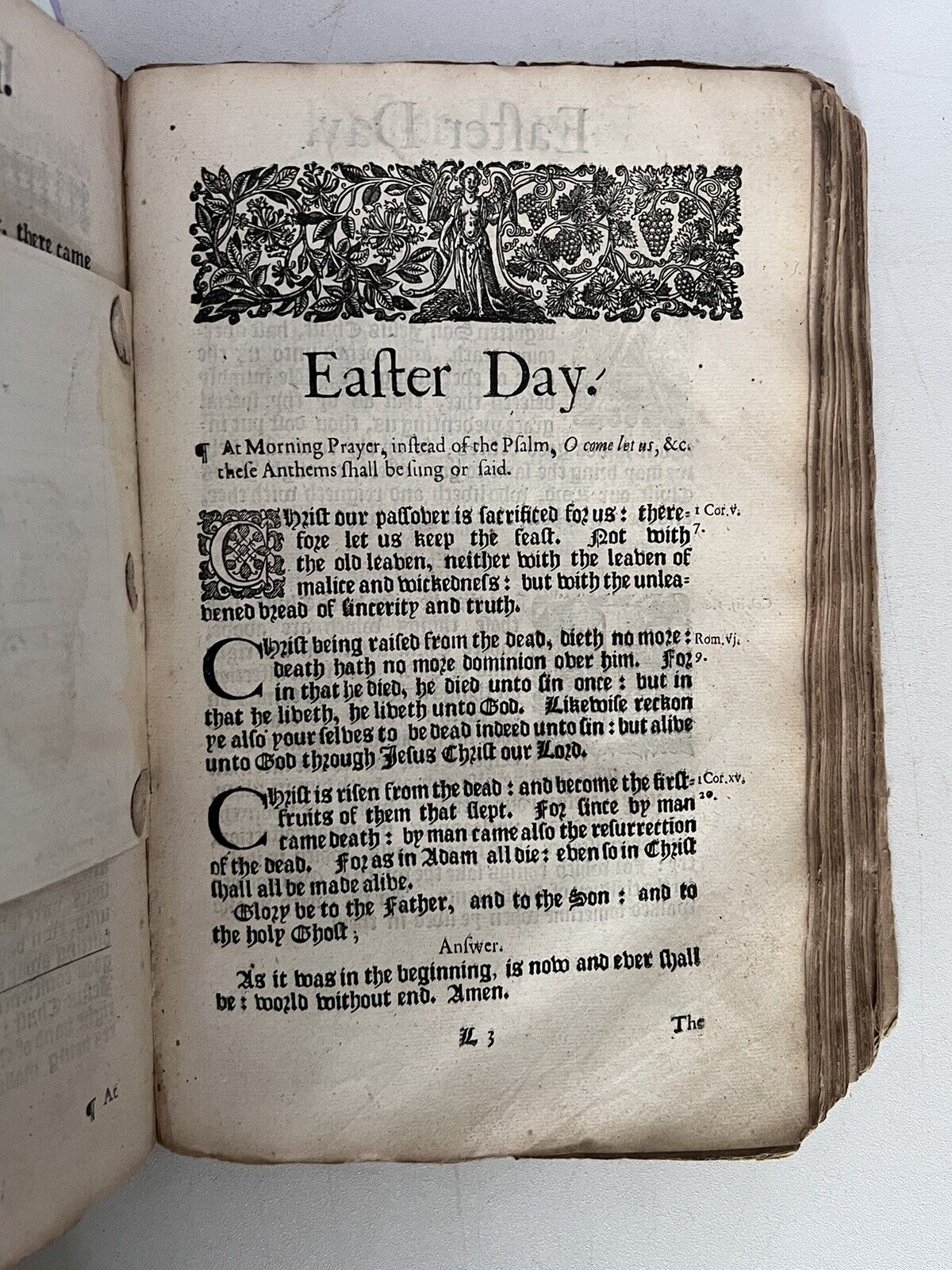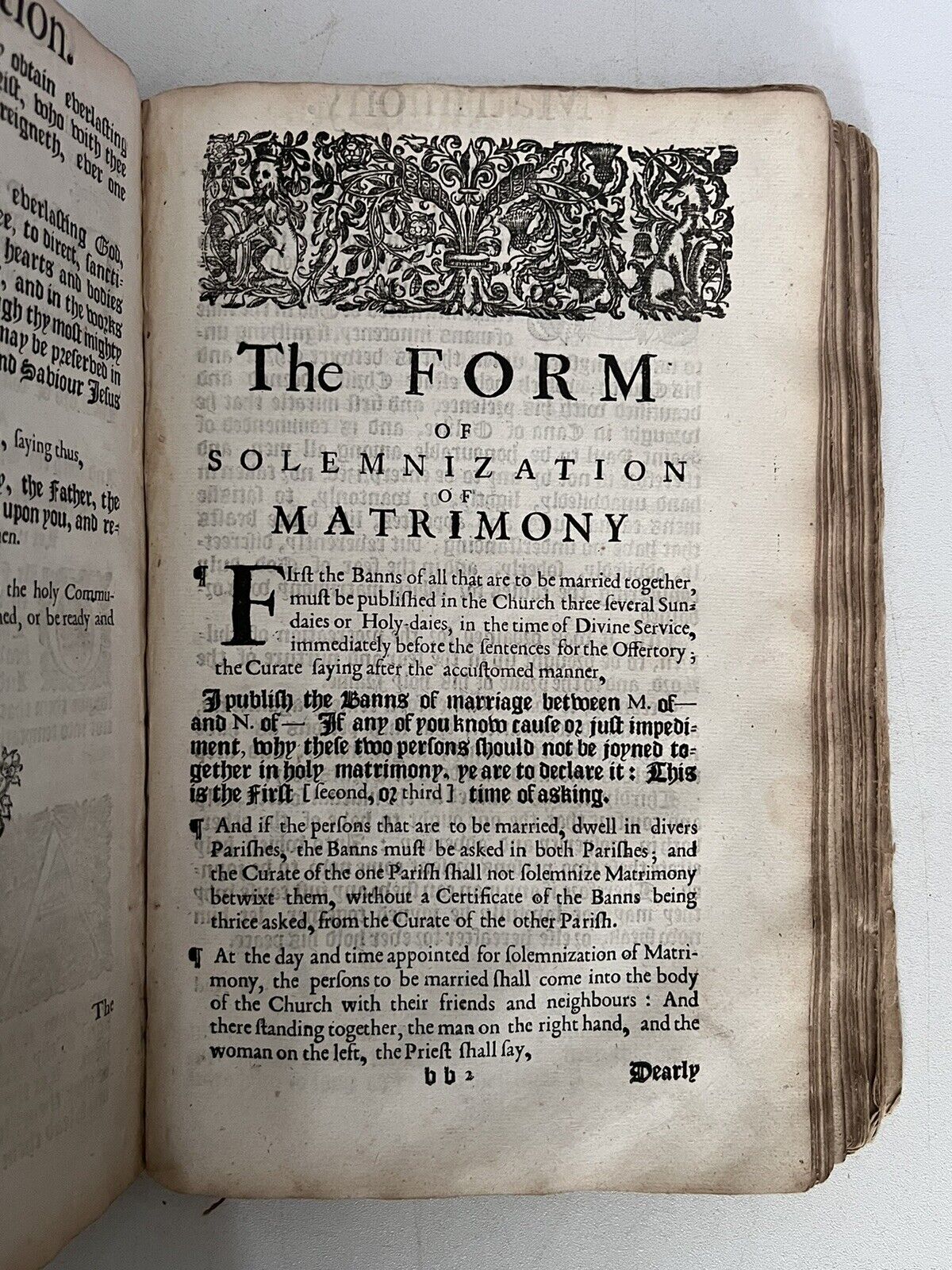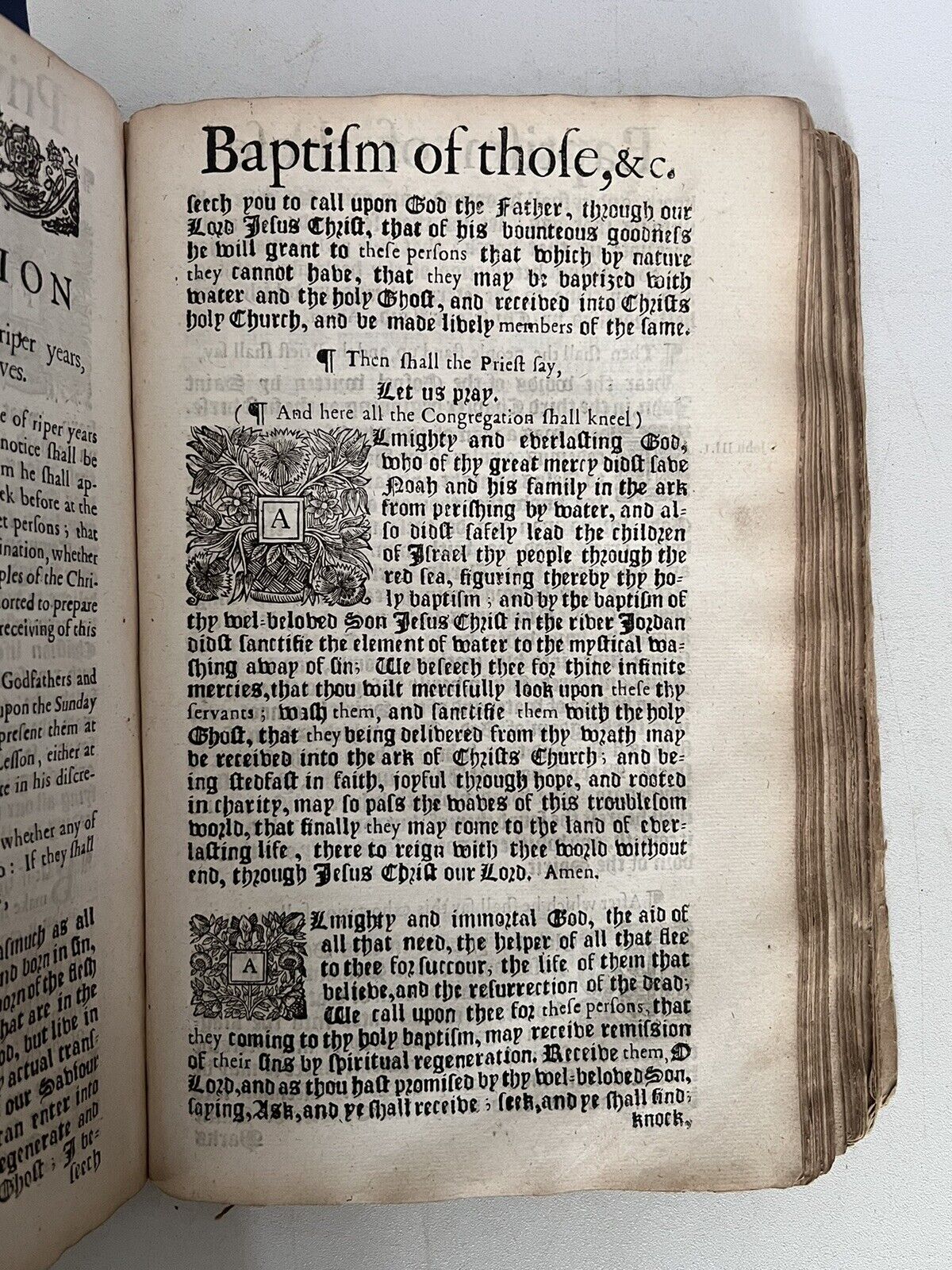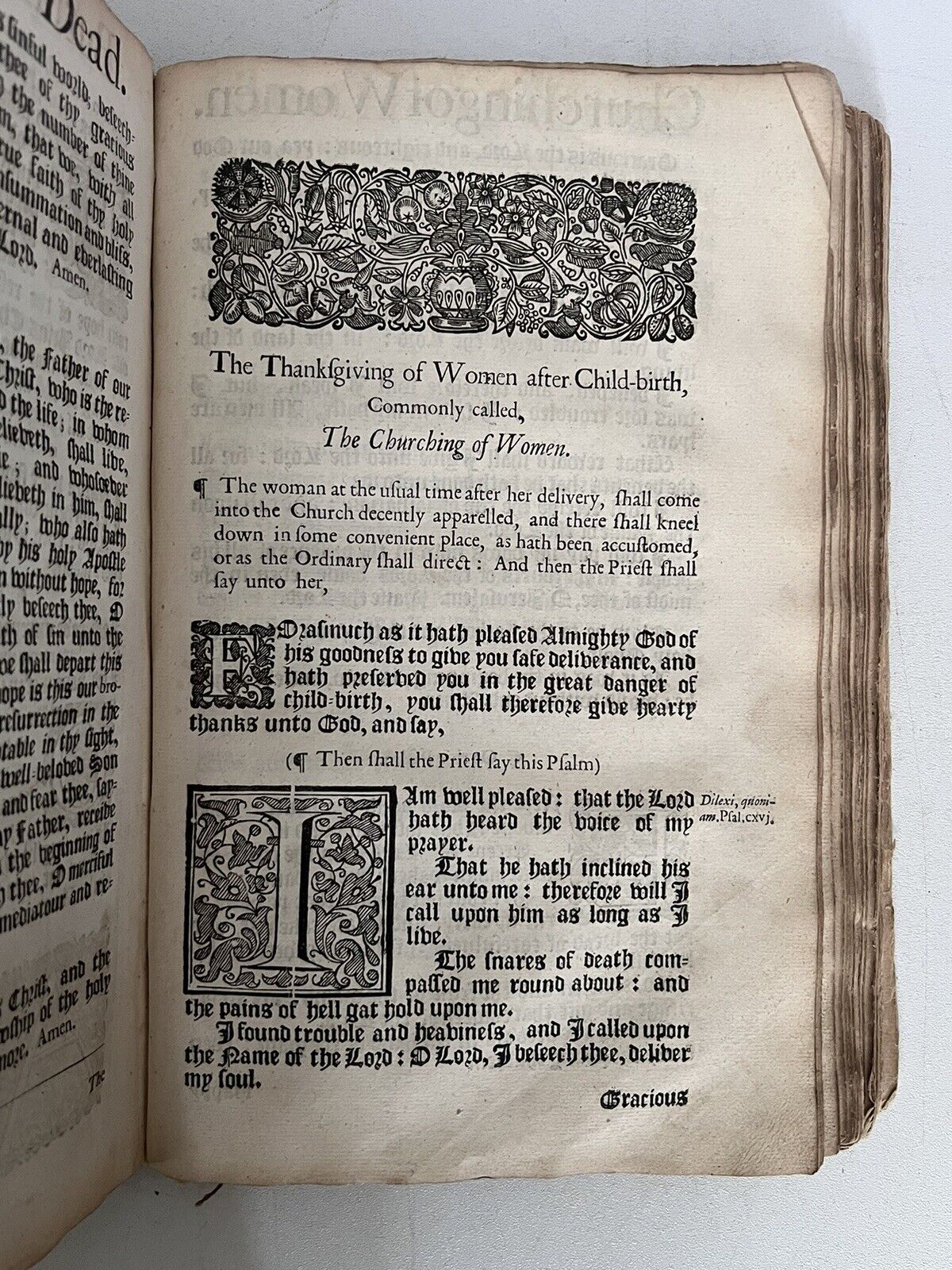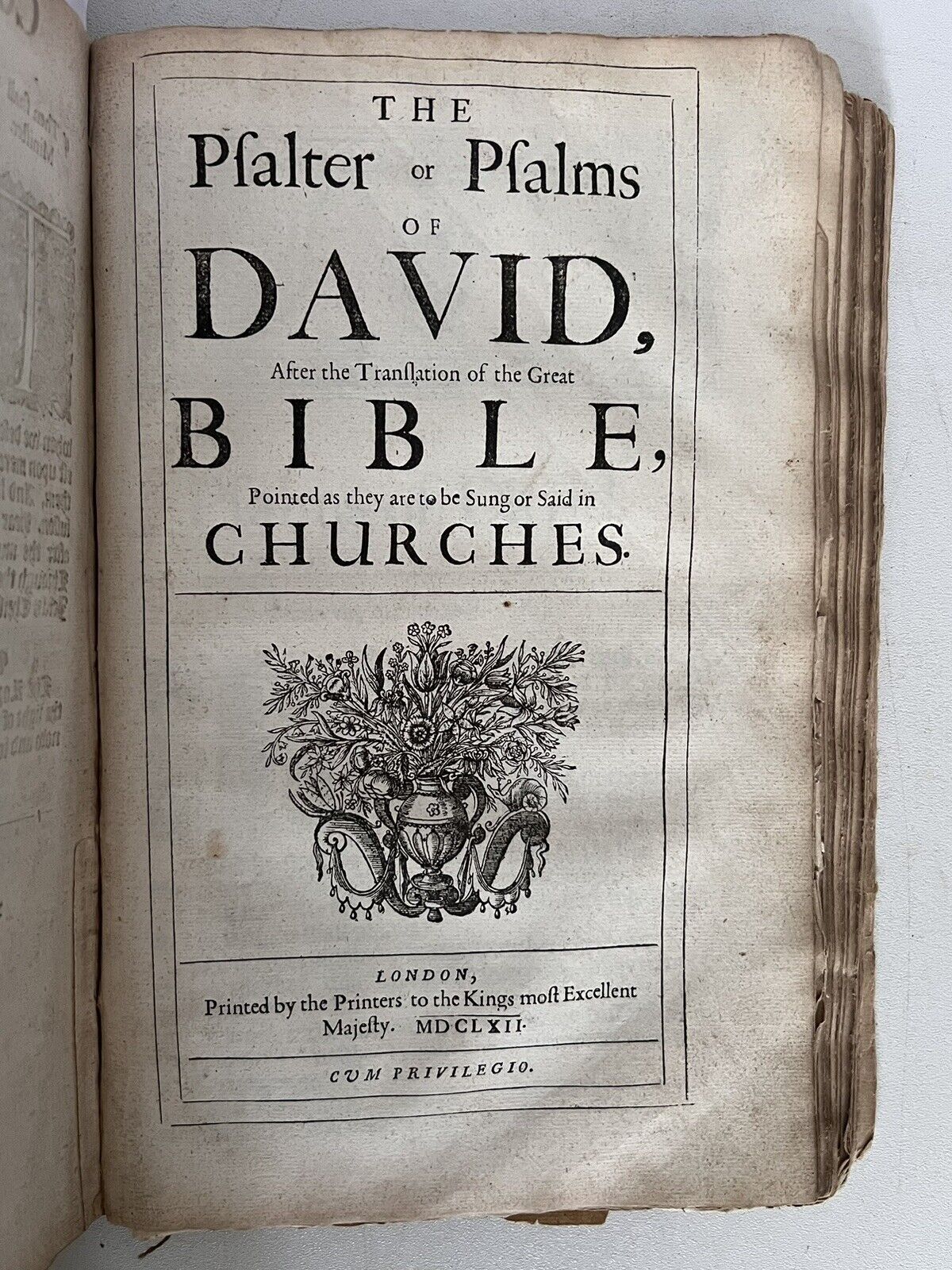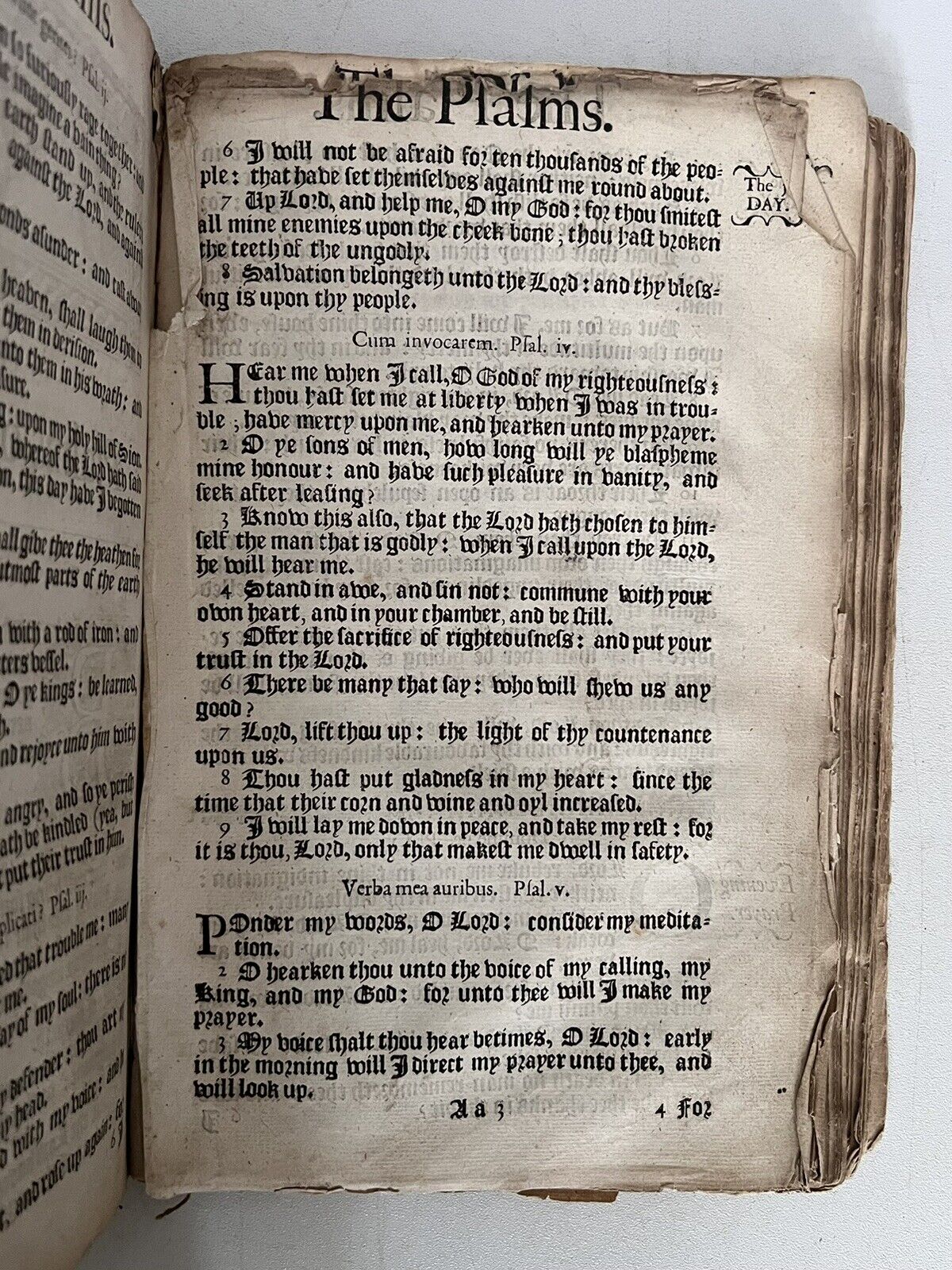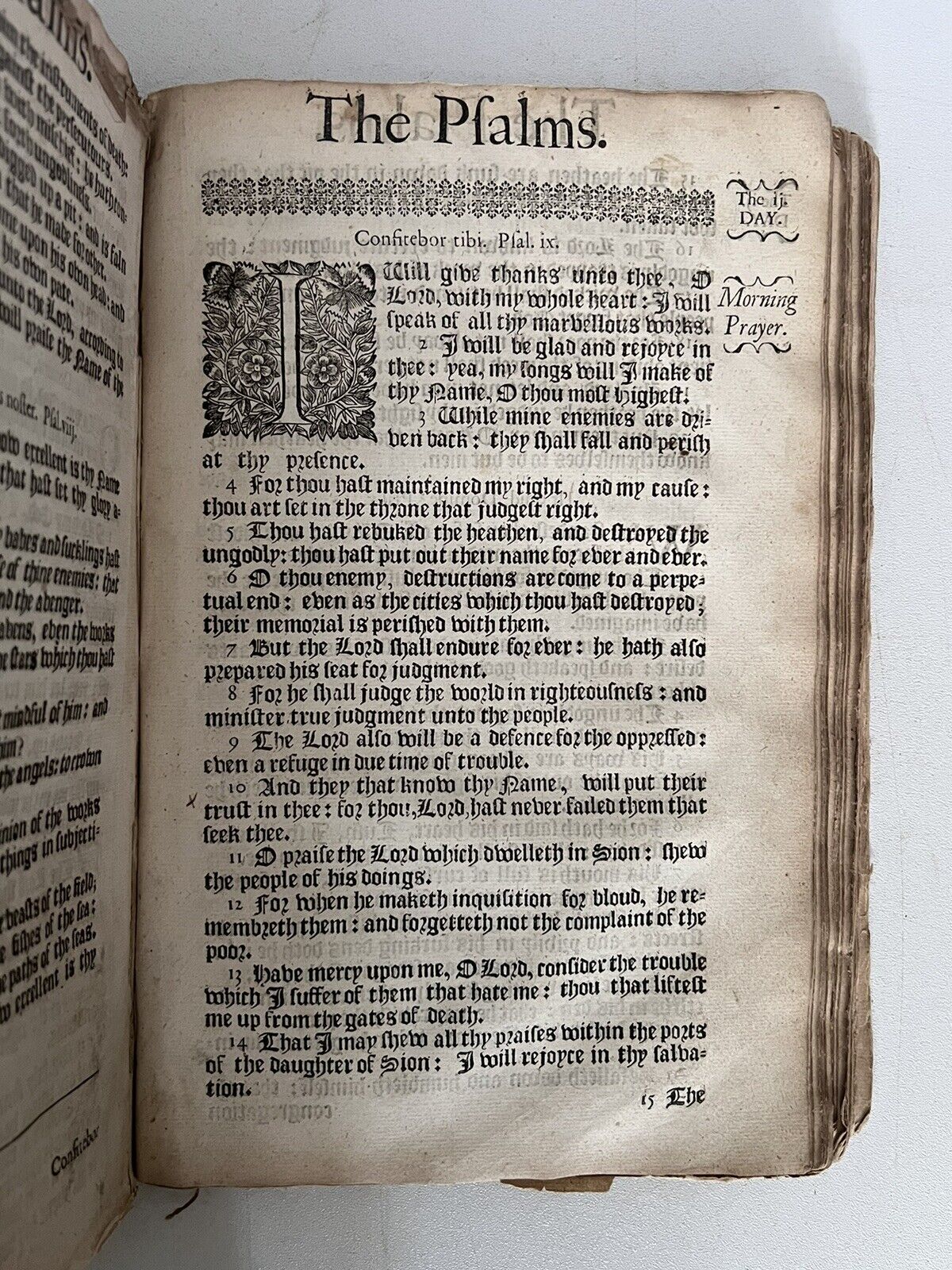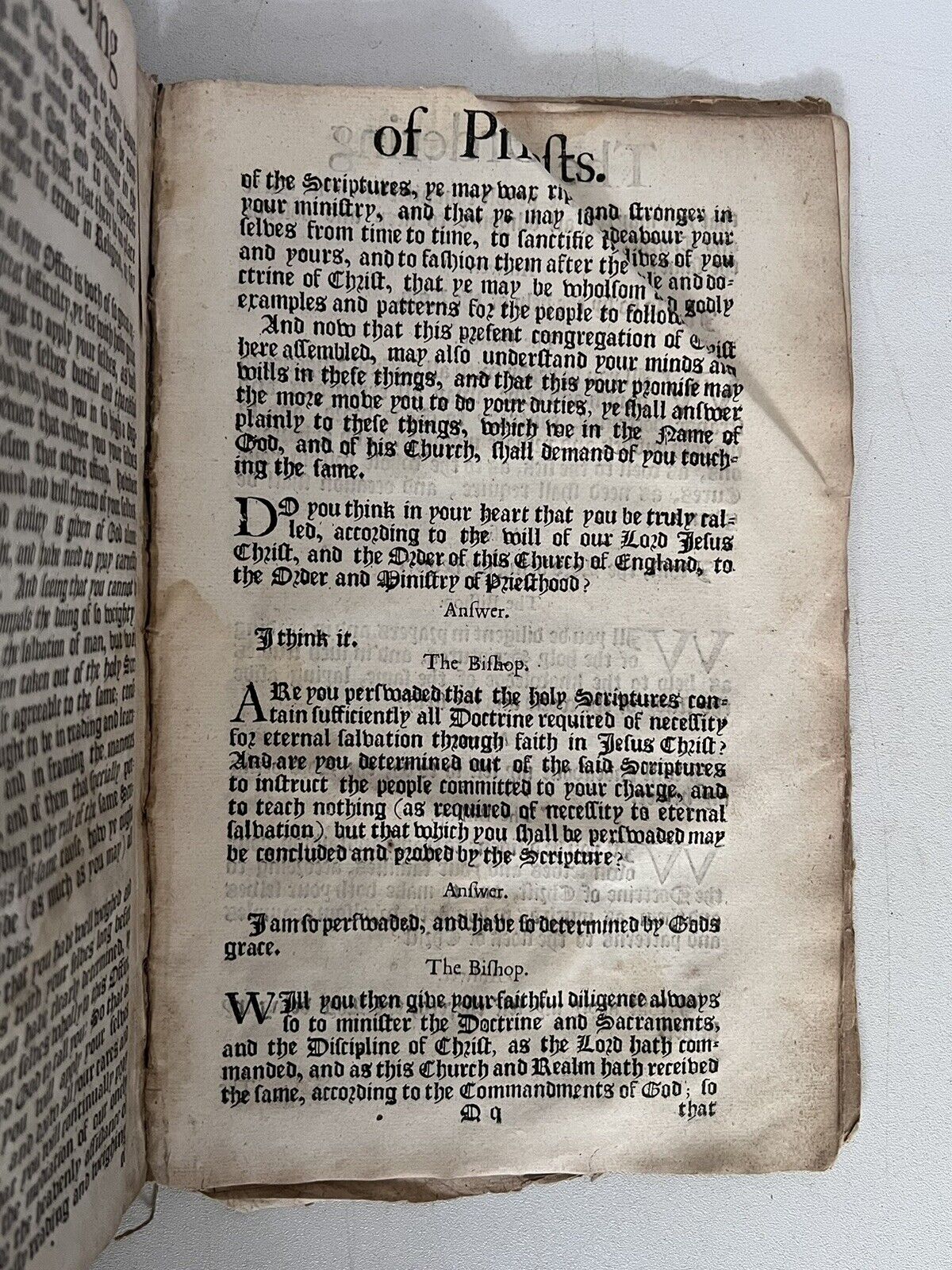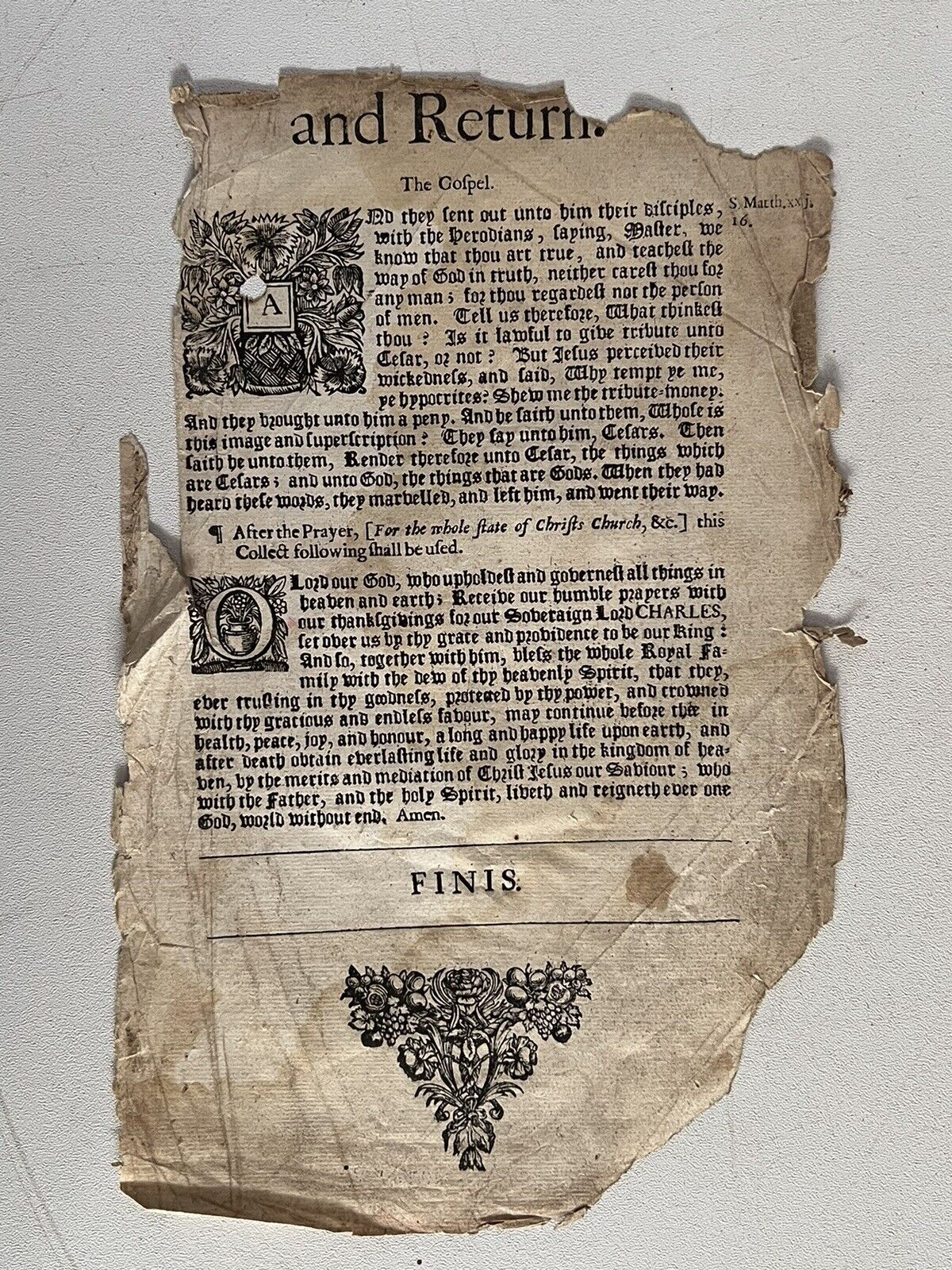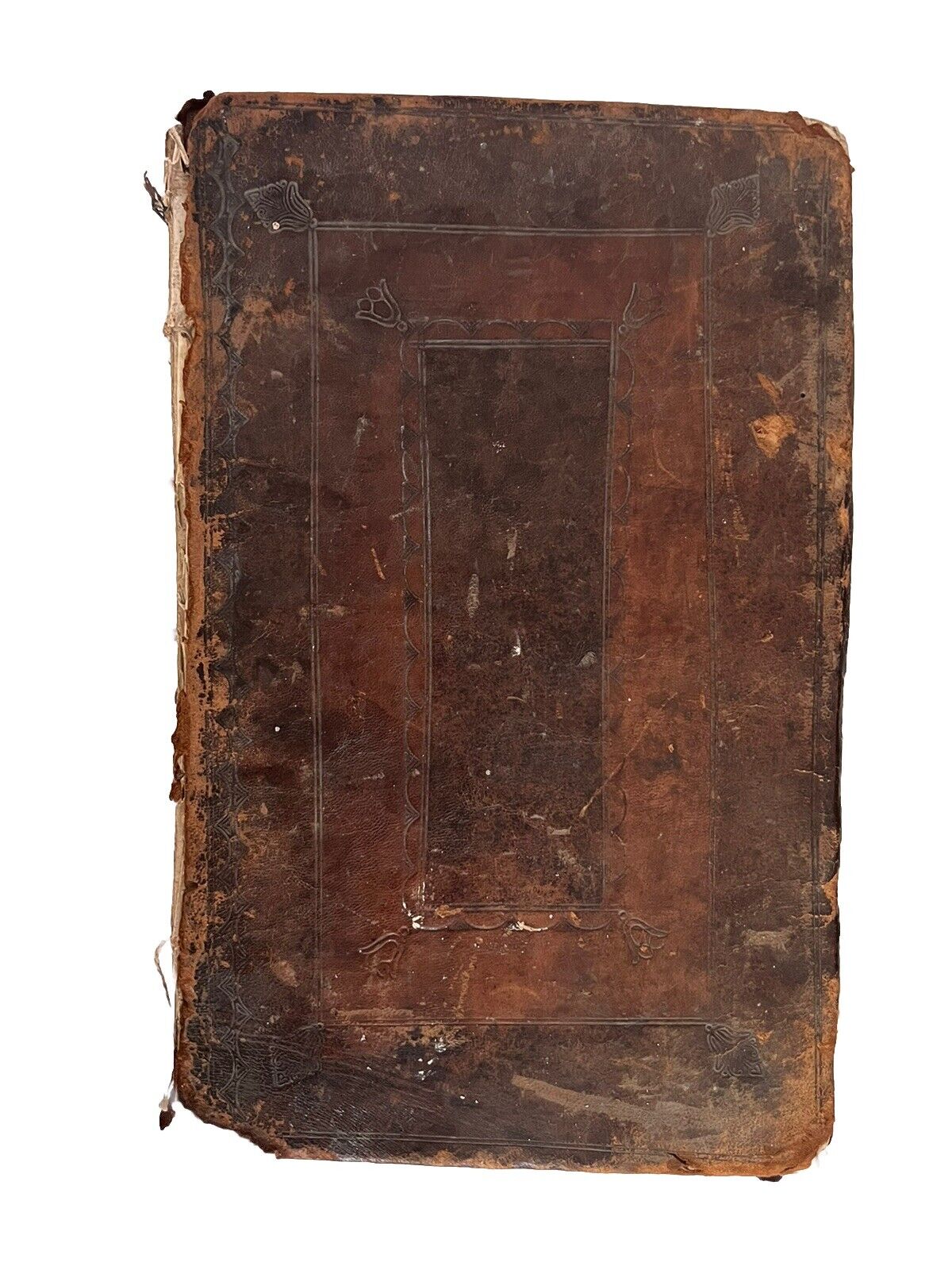The Book of Common Prayer 1662 First Edition
The Book of Common Prayer 1662 First Edition
Couldn't load pickup availability
The Book of Common Prayer and Administration of the Sacraments, and other Rites & Ceremonies of the Church, According to the Use of the Church of England, Together with the Psalter or Psalms of David, Pointed as they are to be Sung or Said in Churches: And the Form & Manner of Making, Ordaining, & Consecrating of Bishops, Priests, and Deacons. London: 1662. [Together with] The Psalter of Psalms of David, After the Translation of the Great Bible, [...]. London, 1662.
FIRST EDITION OF THE 1662 BOOK OF COMMON PRAYER, STILL IN USE TO THIS DAY ACROSS ANGLICAN CHURCHES WORLDWIDE.
WITH FANTASTIC PROVENANCE AND EVIDENCE OF EXTENDED USE. A MAGNIFICENT PRODUCTION WITH BEAUTIFUL TYPOGRAPHY, A VERY FINE ENGRAVED TITLE PAGE, ETC.
-------------------
The 1662 edition of the Book of Common Prayer (BCP) stands as a pivotal text in Anglican history, shaping theological thought, liturgical practice, and cultural identity. Created in the aftermath of the English Civil War and the Restoration, it aimed to unify a divided nation by balancing Catholic tradition with Protestant reform, thereby defining Anglicanism’s moderate theological stance.
Liturgically, the 1662 BCP standardised worship across England and its colonies, providing a consistent religious experience through its structured services, such as Morning and Evening Prayer, the Eucharist, and rites of passage like Baptism and Marriage. This uniformity reinforced the cohesion of the Anglican Communion.
The BCP’s influence extends beyond the church, significantly impacting the English language and culture. Its eloquent early modern English has shaped literary and rhetorical traditions, with many of its phrases, like “till death us do part,” becoming part of common parlance. Additionally, the BCP helped instil Christian values in society, embedding Christian morals into daily life and fostering a collective ethical framework.
In essence, the 1662 BCP is more than a religious text; it is a cultural cornerstone that has profoundly influenced English-speaking societies, both spiritually and culturally.
The first edition of the Book of Common Prayer was printed in two formats; a royal folio and a demy folio edition. This is the demy folio edition as referenced by Wing and Griffiths, released simultaneously with the other size printing. Another edition was published in Cambridge slightly later, but was not as magnificent a production as the beautiful London edition, with very fine typography, a beautiful engraved title page, etc.
-------------------
VERY RARE! We could trace no sales records of the demy folio format of the first edition selling at auction. An unrecorded slightly larger format sold at Bonhams 18th June 2014, realising £1,750 (GBP) / $2,220 (USD).
-------------------
Provenance:
Ownership inscription of William Gwyn dated 1724 to main title page. Thence passed to John Gwyn by descent, with his ownership inscription dated 1749 also to the main title page. Manuscript prayers and missing leaves provided in manuscript facsimile throughout in an early very neat hand, presumably roughly following to John Gwyn's acquisition of the book, thus circa 1749-1780, probably written over an extended time period with use, thus demonstrating a long period of use, probably at least two centuries of continual use.
-------------------
Size: 190 x 285 mm (approx.)
Condition:
[(2), t.p., (1), A2, a1-d6, e2, A1-A4, [A5-A6], A7, B1-B2, [B4-C5], C6, D1-Z6, aa1-aa4, aa6, bb1-cc6]; [t.p., aa2-cc6, dd2-mm6, nn8, *1-*6, oo1-qq6, ss8]
Original blanks, preliminaries, Calendar, all collate as complete. Book of Common Prayer lacks two leaves (B3, aa5), with A5-A6 and B4-C5 provided in manuscript facsimile, else collates as complete. A2 is detached, ragged at edges with marginal loss. There is a manuscript prayer pasted to D3 covering the text below, but exactly matching the text that is below. Psalms of David, also printed in 1662, interestingly taken from Henry VIII's Great Bible translation, has three leaves detached (aa3-aa4, dd6) but present, lacks dd1, else collates as complete. Minor marginal loss at top corner of pp5-pp6, gathering ss disbound, but present. Final leaf (ss8) ragged with marginal loss at all edges, but without text loss. Final two gatherings of Psalms dampstained in gutter without loss of sense to text. Some minor worming through gatherings ii-ll in the marginal space (only) in Psalms
Disbound, but essentially unrestored and so incredibly charming. Very rare in completely unrestored condition, and very rare in any condition, with only one traceable sales record of this very scarce first edition of the 1662 BCP. Retains one of the original boards (only), which is a beautiful panelled full calf board, probably made in Cambridge contemporaneously.
[Griffiths pp.108].
